
Farm City: The Education of an Urban Farmer
by
Novella Carpenter
Published 25 May 2010
I didn’t know how many rabbits we had or whether the chickens were getting enough food—I could only think of the pigs. Even my family and friends had taken second place behind the pigs. I hadn’t talked to my mom or sister in weeks. Willow went Dumpster diving with Bill and me sometimes, but I could tell her heart wasn’t in it. Bill and I had grown closer, though. After a sweaty night of summer Dumpster diving, we would share the bathtub, wash each other’s backs, and marvel at the treasures we had found that night, and the porcine treasures that were growing larger and larger in our backyard. The pigs had grown so big, the other animals were scared of them.
…
We turned the corner and scoped out 10th Street, carrying our swaying buckets like milk maids gone a-milking. If they could have, I liked to think, the chickens and the rabbits would’ve hopped or flown over here to 10th and Webster just as most of the restaurants closed and stood there, with furry paws and scaly legs, Dumpster diving. They would hear, as we did, the laughter wafting out of the open windows above us, the smell of cigarette smoke mingling with the odor of fetid fruit. An ancient Chinese lady wearing elbow-high plastic gloves walked by us. She might have been the same woman Bobby had scared off from our recycling bins.
…
I removed the T-shirt from the hive entrance and watched happily as the golden specks investigated their surroundings, landing on my carefully tended garden, then flying into the sky for a better view. A few days later, I walked by Brother’s Market on my way to get weeds for the chickens, ducks, and geese. Bill and I hadn’t gone Dumpster diving lately. Mosed, the shopkeeper, was outside enjoying the sun. When he saw me, he pointed at the buckets. “What do you do with those?” he asked. “They’re for my chickens,” I said. “Where are these chickens?” he asked, sure that I was quite insane. “At the farm down there,” I said, and pointed at the lot, which you could see from Mosed’s doorway.
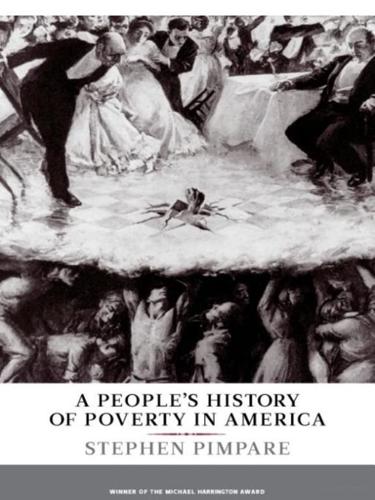
A People's History of Poverty in America
by
Stephen Pimpare
Published 11 Nov 2008
Hopkins, Spending to Save: The Complete Story of Relief (Seattle: University of Washington Press, 1936 [1972]), 108. 30 In Janet Poppendieck, Breadlines Knee-Deep in Wheat: Food Assistance in the Great Depression (New Brunswick, NJ: Rutgers University Press, 1986), 27. 31 Edmund Wilson, The American Earthquake: A Chronicle of the Roaring Twenties, the Great Depression, and the Dawn of the New Deal (New York: Da Capo, 1958 [1996]), 462–63. 32 Backwords, Surviving on the Streets, 84. 33 Ibid., 96. 34 Lars Eighner, Travels with Lizbeth (New York: St. Martin’s, 1993), 117–18. The seminal text on Dumpster diving may be John Hoffman, The Art and Science of Dumpster Diving (Port Townsend, WA: Loompanics, 1992). Hoffman claims it is, at any rate. See also John Hoffman, Dumpster Diving: The Advanced Course (Boulder, CO: Paladin Press, 2002). 35 Eighner, Travels with Lizbeth, 13. 36 From Somebody in Boots by Nelson Algren, with WPA Writers’ Project, in Swados, The American Writer, 323. 37 In Folsom, Impatient Armies of the Poor, 126. 38 Jennifer Toth, The Mole People: Life in the Tunnels Beneath New York City (Chicago: Chicago Review Press, 1993); Eighner, Travels with Lizbeth; Backwords, Surviving on the Streets; Eric H.
…
Table of Contents Title Page Dedication Epigraph Preface Introduction Chapter 1 - Survive: My Brother’s Keeper The Pathology of the Ghetto Another Side of the Slum Kin and Kinship The Political Economy of the Ghetto Communities of Support Chapter 2 - Sleep: A Place to Call Home Life Inside On the Streets Homelessness and Veterans On the Road Women on the Road The Anomaly of National Aid The Kindness of Strangers Chapter 3 - Eat: Dumpster Diving There Is No Hunger Here Faith and Food Eating Trash Chapter 4 - Work: (In) Dependence Work and Welfare Other Dependencies Chapter 5 - Love: Women and Children First Rethinking Responsibility Motherhood Fathers Sex, Power, Poverty Children Chapter 6 - Respect: The Price of Relief More Than It’s Worth A Last Resort Chapter 7 - Escape: Black and Blue Redefining the Scope of Welfare State Analysis Slavery and the Welfare State A Brief Reprieve Jim Crow and the Black New Deal Poverty, Labor, and the Prison Chapter 8 - Surrender: A Culture of Poverty?
…
Our purpose is to create a safe, sanitary, self-governed place to live as an alternative for Portland’s poor, an alternative to the over-burdened shelter system where there are about 600 shelter beds for about 3500 homeless people, an alternative to sleeping alone in the doorways, under the bridges, or in the jails where we are occasionally housed for urinating in public, jaywalking, camping, whatever.116 It’s yet another form of independence they seek, to build a community on their own terms, to solve their homelessness problem in their own manner, without the patronage or the patronizing of the established public and private relief agencies. 3 Eat: Dumpster Diving People ask me: Why do you write about food, and eating and drinking? Why don’t you write about the struggle for power and security, and about love, the way others do? They ask it accusingly, as if I were somehow gross, unfaithful to the honor of my craft. The easiest answer is to say that, like most other humans, I am hungry.
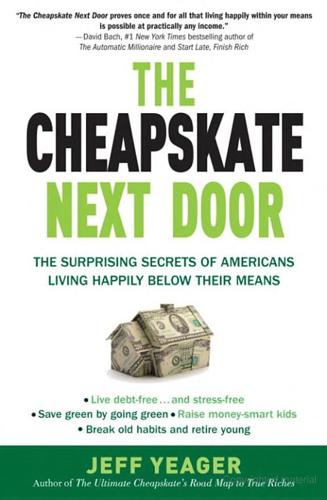
The Cheapskate Next Door: The Surprising Secrets of Americans Living Happily Below Their Means
by
Jeff Yeager
Published 8 Jun 2010
I concluded that I was either going through male menopause and having a hot flash, or else my TE was definitely flaring up that day. Free at Last, Free at Last … Thank the Internet, Free at Last Despite my rather jaded opinion of computer technology in general, I’ll admit that the Internet has its advantages, including making access to free stuff easier than ever. It’s sort of like virtual dumpster diving. The first tip from the cheapskate next door when it comes to using the Internet to find free stuff is to join local “reuse groups” in your area. Reuse groups are community-based networks of folks who have things they’re looking to give away, and other people who are looking for specific items they’d prefer to get for free.
…
They’re also the authors of The Scavengers’ Manifesto (Tarcher, 2009), which they describe as “the new handbook for the scavenging movement.” Anneli and Kristan broadly define scavenging as “any legal way to get stuff for less than full price,” so it’s everything from thrift-store shopping and using coupons to dumpster diving, foraging for wild foods, and, yes, beachcombing. We immediately hit it off, since, like me, the couple’s means of support consists of two components: the modest income common among writers like us and, much more important, the fact that we don’t need to spend much money to live comfortably.
…
The important thing to know is that searching for and recovering funds is free—so don’t fall for scams asking you to pay money to recover assets that you can rightfully claim. NAUPA is a legitimate nonprofit organization representing state treasuries. Visit unclaimed.org to start your search. Also check treasuryhunt.gov for unclaimed savings bonds. Savings: Per NAUPA, if you’re that one-in-eight, an average of $1,000. Although they do their share of dumpster diving, Anneli and Kristan don’t consider themselves Freegans, since they do pay for some of the things they consume and they don’t share all of the social and political views associated with Freegans. (Freeganism was born in the 1990s out of the antiglobalization and environmental movements. Freegans believe in leading an anticonsumerist lifestyle, salvaging food and other discarded items from dumpsters and elsewhere for political reasons, rather than out of need.)
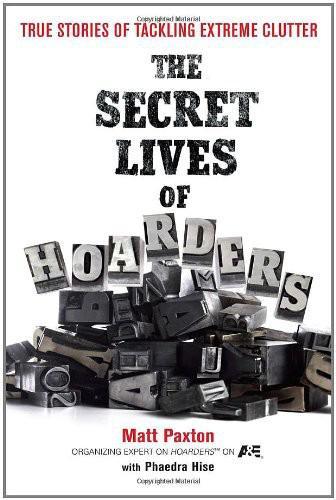
The Secret Lives of Hoarders: True Stories of Tackling Extreme Clutter
by
Matt Paxton
and
Phaedra Hise
Published 3 May 2011
But she wasn’t able to put that limit on herself. In Margaret’s mind, if one dog made her happy, a hundred dogs would make her a hundred times happier. Putting a limit on how many dogs she could accept into her household would be like putting a limit on her happiness, and she wasn’t willing to do that. For hoarders who shop (or Dumpster dive), it’s the same issue. Purchasing an item gives them a rush of temporary joy, so purchasing more items seems like it should give them an even bigger rush. The collecting gets out of hand when hoarders become so compulsive that they can’t limit it. It’s also a problem when hoarding is the only thing that brings the person happiness, instead of family, friendships, hobbies, work, exercise, or other pastimes.
…
To me their behavior looks more like a compulsion, which is a behavior that feels so good that a person does it to excess. I do see serious hoarding compulsions that have a lot in common with addictions like alcoholism and drug addiction, and I’m not a psychologist, so I tend to use the word “addiction” to describe hoarding, even though it may truly be more of a compulsion. Hoarders who shop, or who go “Dumpster diving,” definitely do it because it feels good. These hoarders get a primal rush from the “hunt and gather” experience. This rush helps them avoid the reality of what is truly going on in their lives. Rescuing a broken television set from someone’s alleyway trash pile is a thrill. These hoarders don’t stop to think about whether or not they have the time to fix that TV, along with the dozens of other broken appliances they have gathered.
…
Anytime an animal hoarder feels down, there’s a cat right there to share some affection, which can quickly become a substitute for human relationships. Receiving love endorphin hits all day is a happy way for anyone to live. Hoarders get to feel that exciting rush every time they go shopping, go Dumpster diving, or reach for one of three dozen affectionate dogs. Especially when the rest of a hoarder’s life isn’t going well, it’s easy to see how this behavior could become an addiction. Some experts argue that addicts never change their personalities; they just substitute healthy addictions for unhealthy ones.
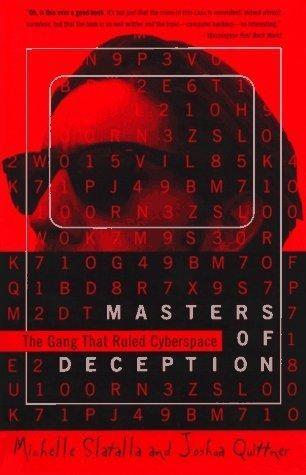
Masters of Deception: The Gang That Ruled Cyberspace
by
Michelle Slatalla
and
Joshua Quittner
Published 15 Jan 1995
And then the worst happens. In the distance, they hear a siren. It's not an ambulance, whose aural signature Paul would recognize at this point in the evening. But it's definitely a siren, and it's getting louder. Closer. It's a banshee now, and it's just around the corner, and Paul, for one, has had it with dumpster diving. He climbs over the fence, as fast as he can, and follows a retreating Hac to the sidewalk. The siren's just about upon them, and they dash madly across the street, bags in tow, past the guy who's sitting in the car, now wide-eyed, watching the kids come leaping over the fence. Their sneakers hit the pavement with heavy slaps, and with barely a second to spare, they dive into a dark, safe spot in the park.
…
Even if Eli didn't know that much about hacking, he certainly knew a lot of hackers. He knew where to go for help. Because this is who Eli is: a kid who knows everybody, a kid who everybody likes, a kid who everybody wants to help. Paul, in the guarded way he warmed to anyone, had certainly come to like him just from talking on the phone. That's why Paul went along on the dumpster dive. That's why, a few days later, when they were talking about the mysteries of the Laurelton computer again, Paul went along with another suggestion Eli made. Eli says they ought to find someone who would be interested in Paul's information, a phone company computer specialist who might be able to get inside other telco computers.
…
The best thing about bulletin boards was the clues the philes contained, clues about how to connect to the biggest, most complex system there was, the phone system. The philes were tantalizing to a nascent hacker, because you knew that some of the mumbo-jumbo in them had to be true. They were written by hackers who had culled kernels of information from dumpster dives. The information, usually no good to them, was evidence of their exploits, and what better way to take credit than to type it up and post it for all to see? Other philes taught Mark a new phrase: social engineering. Social engineering means tricking people into giving you information over the phone, usually by pretending you're someone they'd want to talk to.

Someone comes to town, someone leaves town
by
Cory Doctorow
Published 1 Jul 2005
Alan paid attention to the patch of screen indicated. Three access points were playing musical chairs, dropping signal and reacquiring it, dropping it again. Kurt shrugged. "Bum hardware, I think. We've got volunteers assembling those boxes, from parts." "Parts?" Kurt's grin widened. "Yeah. From the trash, mostly. I dumpster-dive for 'em." They grinned back. "That's very hot," Lyman said. "We're looking at normalizing the parts for the next revision," Alan said. "We want to be able to use a single distro that works on all of them." "Oh, sure," Lyman said, but he looked a little disappointed, and so did Kurt. "Okay, it works," Lyman said.
…
They were cuddled together on the sidewalk, Kurt atop him, and Lyman and Sara bent to help them apart. "Nice catch," Lyman said. Kurt was helped to his feet, and he declared that he'd sprained his ankle and nothing worse, and they helped him back to his shop, where a couple of his kids doted over him, getting him an ice pack and a pillow and his laptop and one of the many dumpster-dived discmen from around the shop and some of the CDs of old punk bands that he favored. There he perched, growly as a wounded bear, master of his kingdom, for the next two weeks, playing online and going twitchy over the missed dumpsters going to the landfill every night without his expert picking over.
…
It was amazing -- it was like he was a tourist even at home, an ugly fucked-up tourist. People suck." "Do they?" Alan said. "I quite like them. You know, there's pretty good Vietnamese in Chinatown." "This is good Vietnamese." "Better than Chinatown?" "Better situated," Kurt said. "If you're going dumpster diving afterward. I'm gonna take your cherry, buddy." He clapped a hand on Alan's shoulder. Real people didn't touch Alan much. He didn't know if he liked it. "God," Alan said. "This is so sudden." But he was happy about it. He'd tried to picture what Kurt actually did any number of times, but he was never very successful.
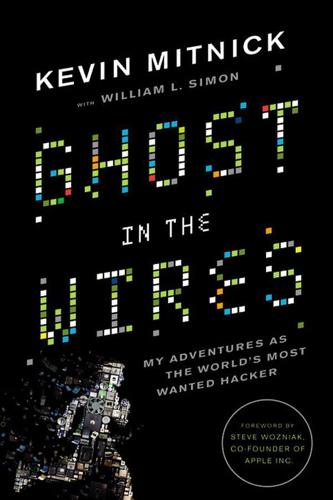
Ghost in the Wires: My Adventures as the World's Most Wanted Hacker
by
Kevin Mitnick
Published 14 Aug 2011
As we started talking, I realized the building that housed COSMOS was nearby, only a few miles away. I figured if a few of us went over there and had a go at a little Dumpster-diving, we might find some useful information. Lewis was always ready for just about anything. We invited only one other guy, a fellow named Mark Ross, who was very familiar with phone systems and someone we thought we could trust. En route, we swung by an all-night pharmacy and picked up gloves and flashlights, then on to the COSMOS building. The Dumpster-diving turned up a few interesting items but nothing of real value. After about an hour, discouraged, I suggested, “Why don’t we see if we can get inside?”
…
Well, where did the buses get washed? I walked over to the nearby bus depot, spotted a big Dumpster in the area where the buses were cleaned, pulled myself up, and looked in. Jackpot! I stuffed my pockets with partially used books of transfers—my first of what would be many, many acts of what came to be called “Dumpster-diving.” My memory has always been way better than average and I managed to memorize the bus schedules for most of the San Fernando Valley. I started to roam by bus everywhere the bus system covered—Los Angeles County, Riverside County, San Bernardino County. I enjoyed seeing all those different places, taking in the world around me.
…
Almost at once I adopted his eating habits and began growing around the middle. It wasn’t long before a pigtailed blond girl on the school bus told me, “You’re kinda cute, but you’re fat. You oughta lose some weight.” Did I take her sharp but unquestionably constructive advice to heart? Nope. Did I get into trouble for Dumpster-diving for those bus transfers and riding for free? Again, no. My mom thought it was clever, my dad thought it showed initiative, and bus drivers who knew I was punching my own transfers thought it was a big laugh. It was as though everyone who knew what I was up to was giving me attaboys. In fact, I didn’t need other people’s praise for my misdeeds to lead me into more trouble.

The Way We Eat: Why Our Food Choices Matter
by
Peter Singer
and
Jim Mason
Published 1 May 2006
They are thus doubly free-free from subordination to the consumer ethos and free from the need to work to satisfy their needs. They think that an alternative, less exploitative economic system is possible, but they are under no illusion that taking food from dumpsters will in itself bring that system about. Instead they see dumpster diving both as a way of detaching themselves from the present system and, at the same time, as part of a broader life of resistance to that system.32 Dumpster diving may not be an option many consumers are likely to explore, but there's still a lesson to draw. Many of agriculture's ill effects on laborers, animals, and the environment could be reduced if we ate what would otherwise be wasted.
…
There is a danger that the desire to hunt and eat the animals will make shooting them the preferred means for dealing with the environmental issue, when other less harmful means (like forms of sterilization) could be used. Whether hunting can, in limited circumstances, be justified depends on whether such other means are available, or could be developed. DUMPSTER DIVING: THE ULTIMATE ETHICAL CHEAP EATS It's about 7.30 p.m. on a mild Tuesday evening in Melbourne, Australia. We're in a small Toyota station wagon with Tim, Shane, G (Gareth), and Danya. They're all in their 20s, wearing old denim or waterproof jackets, except for G, who is wearing a jacket that might once have been more stylish and formal, but is now so worn that it would have suited Charlie Chaplin in "The Tramp."
…
If they are asked to leave, they say, they just go. We move on to another supermarket up the road. The bins here are chained down again, but the gap is wide enough for G to spot some cof fee he wants. It's too far down for even his long arm to reach, so for the first and only time tonight we see some real "dumpster diving" as G gets his upper body right into the bin, only his legs sticking out the top. The booty is eight 250-gram vacuum-sealed packets of an imported Italian Arabica coffee, just a couple of days past the expiration date. ANIMAL-FREE MEAT? "Skum-skimming wasn't hard to learn. You got up at dawn.
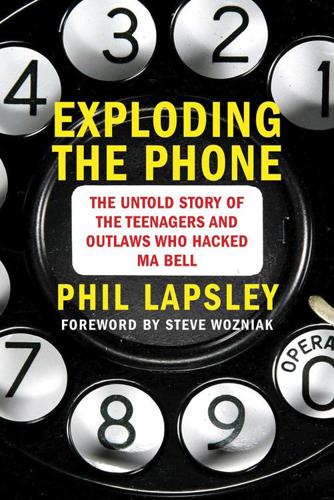
Exploding the Phone: The Untold Story of the Teenagers and Outlaws Who Hacked Ma Bell
by
Phil Lapsley
Published 5 Feb 2013
Meanwhile, telephone company truck yards were being burglarized, and the things being stolen were items such as telephone company hard hats, tools, and “test sets”—the odd-looking telephones with alligator clips that telephone company repair people always have on their tool belts. “We didn’t have a clue. No clue,” Perrin recalls. “We had all these little cases. You knew they were related in a fashion but you couldn’t tie them. . . . We had trucks being broken into, we had Dumpster diving, the Valley was just rife with petty thievery. Test sets were taken. Books were taken. Manuals were taken. Wire is taken. Nothing of great value, but they would go in and take this stuff. So you’re looking at this trying to figure it out.” And not getting anywhere. Then there were the really strange cases, the ones that made no sense at all.
…
It was nice to talk to their far-flung network for nineteen hours but the real purpose was to screw Doc Bosley. Hence Project 21: a goal of racking up $21,000 in phone bills for the good doctor. Then there were the telephone company employees. If you’re a phone phreak, where do you get your information? Dumpster diving, playing with the phone, talking to other phone phreaks? Sure, all that works. But sometimes it’s easier just to talk to people who actually work for the telephone company. Big surprise: some telco employees were phone phreaks too. Others just had a soft spot for a bright kid who wanted to know how the telephone system worked.
…
William (Bill) 92–97, 104–105, 113–114, 116, 304–305, 331 Camp Bloomfield 155 Camp Wapanacki 136 Campbell, Duncan 389 Cap’n Crunch whistle 155, 166, 202, 209, 326, 369 Cap’n Software 329 Captain Crunch: See Draper, John Card translator, 4A crossbar 47, 174 Carson, Johnny 228 Carterfone 298–299 Case Western Reserve University 180 Cat and Canary Bird Call Flute: See Davy Crockett Cat and Canary Bird Call Flute Catalyst, Cheshire 320–321, 331 Cave drawings 158 CCIS: See common channel interoffice signaling Celebrities and blue boxes 223, 243–244 Central office 052 conference 207 AUTOVON 269 Barclay, Ralph 58–59 Black box fraud 89 CAMA-C 297 Concept of 20, 23–24 Greenstar 94 Electromechanical 44–48 Electronic 232–238 Engressia 121, 127, 131, 317 Fiddles 242 Line card 265 Loop arounds 148–149 Machine, The, impact of 160 Social engineering 177–179, 202 Simultaneous seizure 226–227 Touch-tone dialing 50, 237 Trunk lines 23–24 See also: crossbar switching system, electronic switching system (ESS), step-by-step switching Central processing unit (CPU) 234–235 Chappe, Claude 14–15 Charley board 312–315 Cheese box 101–103, 114, 127, 149 Cheney, Bill 265, 268 Chesapeake and Potomac Telephone Company 188 Chicago Seven 199 Churchill, Ray 132–133 CIA crisis line 229 Clarkson College of Technology 180 Coburn, James 191 Cochran, Jay 258, 277–278, 282 Code of conduct 169 Code of silence 144–145 Cohen, Ben 108–110, 327 Coin telephone: See pay phone Common channel interoffice signaling (CCIS) 296–297, 306, 332 Common control 45–47, 236 Communication Workers of America (CWA) 190 Competition 22, 26–27, 236, 298–302 Computer Digital circuitry 220–221 Electronic switching 233–235, 296–297, 322 Hacking 306–309, 320 Homebrew/personal 272, 276, 280–281, 306–309 Phone phreaking 313–314, 316 Condon, David 29–30, 35–40, 244–245, 277, 291, 326–327 Conference call: See 052 conference, 2111 conference, busy signal conferences, open-sleeve-lead conferences, party line conferences Congressional Research Service 96–97 Conners, Earl 305 Conventions, phone phreak 212–215, 319–321 Cordboard: See switchboard Cornell University 86, 186 Cornfeld, Bernard 243–244 Counterculture 150, 185–200, 209, 241 CPU: See central processing unit Credit card fraud, telephone 102, 193–197, 204, 241, 293 Crimson, Harvard 1, 6–8, 10, 12, 225 Crossbar switching system 42, 45–46, 49, 120, 161, 232–233 See also: #4A crossbar switch, #5 crossbar switch, crossbar tandem Crossbar tandem (XBT) 175–176, 371 Crybaby 65 Cummings, Robert 244 David, B. 2–4, 7–10, 126–129, 165 Davis Jr., Sammy 195 Davy Crockett Cat and Canary Bird Call Flute 30, 35–36, 39, 244, 327 Davy Crockett: See Condon, David Dawson, Floy 282–284, 292 DeButts, John 158, 258 Decibel, Ben 245 Defense Communications Agency 269–270 Demo gods 279 Demonstrator, touch-tone 237, 247 Desmond, John 80, 82–83 Dial, telephone, letters and numbers 32 Dialed number recorder (DNR) 314–315 Diamond, Al 149–150, 223, 328 See also: Bernay, Al Digital blue box 220–221, 383–384 Direct control 44–46 Direct distance dialing (DDD) 32, 49–50 Directory assistance 53–55, 61, 66, 124, 137, 273, 311, 335, 351 Supervision signal and 143–146 Spoofing 227–228 Discriminatory hiring practices, AT&T 189–190 Distant Early Warning (DEW) line 182, 273 Doherty, Joseph 183, 199, 231, 248, 258 Doorbell, Evan 204, 245 Doyle, Jerry 105–106, 115 Draper, John 2111 conference 163, 206 Apple Computer 312–314 Arrest, California, 1972 201, 205–209, 216–217 Arrest, California, 1976 290–294 Arrest, New Jersey, 1977 315 Arrest, Pennsylvania, 1977 314–316 Avoidance by other phreaks 245, 277, 292 BART ticket forgery 329 Captain Crunch 165–166 Charley Board 312–314 Convention, phone phreak, 1972 213–214 Defense fund 213, 215–216 Draperism 282, 315, 318–319 EasyWriter word processor 319, 329 Esquire article 171–173, 177, 179–181 FBI wiretapping via verification 249, 251–261, 267, 272–274, 276, 281–283, 287–290 Homebrew Computer Club 309 Learns of phone phreaking 150–155 National Public Radio program 230 Parole violation, 1979 318–319 People’s Computer Company 281 Personality quirks 171–172 Piggyback ride 337 President Nixon prank 228–229 Psychiatric evaluation 318–319 Tandem stacking 177 TAP, letters to 276, 319 Wozniak, Steve 221–222, 312–314 DUE (Detect Unauthorized Equipment) 188 Duffy, Thomas 204–205, 383 Dumpster diving 241, 247, 263, 286 DXing, radio 136 EasyWriter word processor 319, 329 Economics 33, 48–49, 231, 269, 297 Edfast, Roger 277–278 Eder, Chic 251–259 Edison, Thomas (inventor) 21, 262 Edison, Thomas (phone phreak) 319–321, 330 Electronic organ 142–143, 153–154, 230 Electronic switching system (ESS) 232–238, 318 Engineers 52, 91–92, 184 Engressia, Joe 2111 conference 163–165 Acker, Bill 140, 161–162, 238 Arrest, 1971 132–134 Bell Labs analysis of Esquire article 183 Blindness 117–118, 164 Blue boxing to get a job 130–134 Captain Crunch 165–166 Childhood 117–123 College 123–129 David, B. 126–128, 165 Denver 316–317 Emotional connection to telephone 119, 129 Esquire article 168, 170, 172–173 FBI investigation, 1969 127–128 For Whom Ma Bell Tolls Not 181 Isolation and loneliness 126–127, 129, 161–162 Memphis 129–134 Millington Telephone 134 Mountain Bell 316–317, 328 National Public Radio 230 Open sleeve-lead conference 127, 202 Publicity 126 Secrecy vs. openness 165, 246 Stories and Stuff 328 Verification 250 Way, Tandy 122, 127 Whistling 122–126 Wozniak, Steve 218–219 Zzzzyzzerrific Funline 328 See also: Joybubbles Entrapment 283–284, 287–288 Equal Employment Opportunity Commission 190, 297 Ernestine (Lily Tomlin character) 191–192 Esquire magazine 170–184, 199, 206, 208–210, 213, 218, 231, 247, 252, 273, 297, 327, 330, 334 ESS: See electronic switching system (ESS) Exchange, telephone 20, 23, 27, 59, 65, 250, 316, 325 000-199 exchange codes 65, 202–203 Automatic 25, 41–43, 45 Failure, PLaza 8, NYC 189 Foreign 300 Missing 9–11 Names 31–32 Numbers 31–32, 45, 47, 65 See also: busy signal conference, central office, party line conference, switchboard Execunet 300–301 Exhaustive dialing: See scanning Extensions, telephone 188, 193 Facebook 150, 158 FBI: See Federal Bureau of Investigation FCC: See Federal Communications Commission Federal Bureau of Investigation Acker, Bill, 1976 311–312 Atomic bomb plans 321 Barclay, Ralph, 1961 59–60 Bell Labs Telephone Crime Lab 182–183 Billings, MT blue box arrests 180 Blue box arrests, September 1972 215 Bookmaking 98, 100–109 Convention, phone phreak, 1972 215 Credit card calls 194–195 Draper, John, 1971–1972 180, 208, 213–214, 216 Draper, John, 1975, wiretapping of FBI 251–261 Draper, John, 1976 276–277, 282–284, 287–292 Engressia, Joe, 1969 127–128 Gudgel, Bob, 1971 181 Harvard students, 1963 78–83 Locke, Jake, 1967 8, 9, 12–13 Oklahoma, Ray, 1972 212 Memo to AT&T Chairman 258 Pyne, Charles, 1963 78–83 Sheridan, Paul 271–280, 287–290, 301 Telephone company security agents 204 Toll fraud 91 Wozniak, Steve, blue box note 223–224 YIPL/TAP newsletter 240–241, 276–277, 321 Federal Communications Commission Antitrust laws 302 Carterfone/foreign attachments 298–299 Hush-a-Phone hearing 159 Laws against telephone fraud 90 MCI 299–300, 302 Investigation into AT&T service failures 189 Investigation into AT&T discrimination 190 Rate increase request 187–188 Fettgather, Jim 147, 153–156, 163–164, 166, 170, 172, 247–248, 328 Feynman, Richard 119 Fiddle 242 Fierstein, Alan 186–187, 192, 197–200 Fifth Estate 241 Fine Arts 13 2, 7–8, 12, 71, 77, 79–80, 126, 225 Firedrake, George 280 Flash Override 270, 274 Flute 76–77 See also: Davy Crockett Cat and Canary Bird Call Flute, Tonette flute Fonger, B.
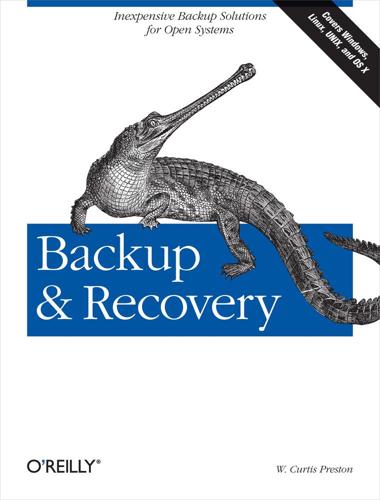
Backup & Recovery
by
W. Curtis Preston
Published 9 Feb 2009
Unix, recording for files, Don’t Forget Unix mtime, atime, and ctime time-to-data, Time-to-Data toolkit, creating for new servers, Take an Inventory torture-testing backup utilities, Torture-Testing Backup Programs, Torture-Testing Backup Programs, Torture-Testing Backup Programs transaction, Transaction transaction logs, Don’t Go Overboard, Transaction log database, importance of, Don’t Go Overboard transfer speed, Transfer Speed tuple, Row twos complement platforms, The Little Endian That Couldn’t U ufsdump utility, Demystifying dump, Dumpster Diving filesystem backup, Dumpster Diving filesystems, inactivity for backups, Demystifying dump Ultra Density Optical (UDO) recording format, UDO recording format Unix systems, Demystifying dump, Dumpster Diving dump utility, Dumpster Diving filesystem, Demystifying dump user error causing data loss, Be Ready for Anything: 10 Types of Disasters user-managed backups, User-Managed Backups, Physical Backups Without rman, Debunking Hot-Backup Myths utime, using to reset atime, The atime can be reset—with a penalty V validated systems, Plan for the Worst vandalism, losing data from, Be Ready for Anything: 10 Types of Disasters very critical applications, Aggressive Requirements very large applications, Aggressive Requirements very large database (VLDB), Simultaneous Backup of One Client to Many Drives very large system (VLS), Simultaneous Backup of One Client to Many Drives virtual tape cartridges (VTCs), Disk-As-Tape: Virtual Tape Cartridges virtual tape libraries, Disk-As-Tape: Virtual Tape Cartridges (see VTL) virtual tape library, Disk-As-Tape: Virtual Tape Libraries (see VTL) VMware, VMware and Miscellanea, Using Bare-Metal Recovery to Migrate to VMware, VMware Architecture, VMware Architecture, VMware Backups, Back up suspended virtual machine files, Using Bare-Metal Recovery to Migrate to VMware architecture, VMware Architecture backups, VMware Backups backups, suspended virtual machine files, Back up suspended virtual machine files bare-metal recovery, Using Bare-Metal Recovery to Migrate to VMware ESX Server, VMware Architecture volatile filesystem backups, Volatile Filesystems, Missing or Corrupted Files, Referential Integrity Problems, Corrupted or Unreadable Backup, Torture-Testing Backup Programs, Using Snapshots to Back Up a Volatile Filesystem backup utilities, Torture-Testing Backup Programs missing/corrupted files, Missing or Corrupted Files referential integrity problems, Referential Integrity Problems snapshots, Using Snapshots to Back Up a Volatile Filesystem unreadable backups, Corrupted or Unreadable Backup volatile filesystems, Volatile Filesystems, Missing or Corrupted Files, Referential Integrity Problems, Corrupted or Unreadable Backup, Using Snapshots to Back Up a Volatile Filesystem backing up with snapshots, Using Snapshots to Back Up a Volatile Filesystem corrupted or unreadable backups, Corrupted or Unreadable Backup missing or corrupted files, Missing or Corrupted Files referential integrity problems, Referential Integrity Problems volume groups, backing up all on system, IBM’s mksysb and savevg Utilities volume managers, configuration information, recording, Take an Inventory Volume Shadow Copy Service (VSS), Client/Server Architecture Using Nonproprietary Tools volume verification, Volume Verification volumes, tapes versus (backups), Why the Word “Volume” Instead of “Tape”?
…
Questions like these raise a common concern when performing backups with dump. Will we learn (after it’s too late) that a backup is corrupt just because we dumped a mounted filesystem, even though it was essentially idle at the time? If we are going to answer these questions, we need to understand exactly how dump works. Dumpster Diving The dump utility is very filesystem-specific, so there may be slight variations in how it works on various Unix platforms. For the most part, however, the following description should cover how it works because most versions of dump are generally derived from the same code base. Let’s first look at the output from a real dump.
…
drive care, Drive Care drives, backups, Bad or Dirty Drive or Tape dump cycle, Backup Scheduling dump utility, An Overview, Backing Up with the dump Utility, Using the index to create a table of contents, Backing Up with the dump Utility, Syntax of the dump Command, The Options to the dump Command, Interesting options for Solaris’s ufsdump utility, Specifying density and size (d and s), Different Versions of dump, Limitations of dump and restore, The dump utility, Torture-Testing Backup Programs, Demystifying dump, Demystifying dump, Dumpster Diving, Pass I, Pre-Pass III, Pass III, Pass IV, Summary of dump steps, A Final Analysis of dump, Determine the Blocking Factor backup data, writing, Pre-Pass III blocking factor, Determine the Blocking Factor demystifying, Demystifying dump differing versions, Different Versions of dump directories, writing data blocks, Pass III file data, dumping, Pass IV filesystems and, Demystifying dump how not to use, An Overview inconsistencies in backups, A Final Analysis of dump inodes, scanning filesystem for, Pass I limitations, Limitations of dump and restore Mac OS versus Linux, Backing Up with the dump Utility multiple volumes, avoiding, Specifying density and size (d and s) options, The Options to the dump Command, Interesting options for Solaris’s ufsdump utility steps, summary of, Summary of dump steps syntax, Syntax of the dump Command Unix platforms, differences, Dumpster Diving volatile filesystem backups, Torture-Testing Backup Programs dump, ditto, tar, and cpio utilities, The tar, ditto, and cpio utilities duty cycle, Duty Cycle DVD recording formats, DVD recording formats dye polymer recording method, Dye polymer recording method E ease of administration, Ease of Administration electronic break-ins, losing data from, Be Ready for Anything: 10 Types of Disasters electronic discovery requests, Satisfy electronic discovery requests end-of-media (EOM) mark, Damaged Volume endian-independent format, The Little Endian That Couldn’t environments, protection levels, picking appropriate, Get the Coverage That You Need Exchange, Database Structure, Exchange, Performing a basic restore, Exchange Architecture, Database Structure, Database Structure, Database Structure, Database Structure, Extensible Storage Engine, Extensible Storage Engine, Extensible Storage Engine, Stores, Stores, Stores, Storage Groups, Transaction Logfiles, Checkpoint Files, Reserve Logfiles, Circular Logging, Other Files, Single Instance Storage, Automatic Database Maintenance, Storage Limits, Backup, Verifying the Backup, Backup Strategy, Backup Types, Normal, Copy, Incremental, Differential, Daily, Exchange-specific, Windows-specific, Backup Methods, Online backups, Offline backups, Streaming backups, Shadow copy backups, Shadow copy backups, Shadow copy backups, Verifying backups, Using ntbackup to Back Up, Verifying the Backup, Restore, Performing a basic restore, Repair or Restore?
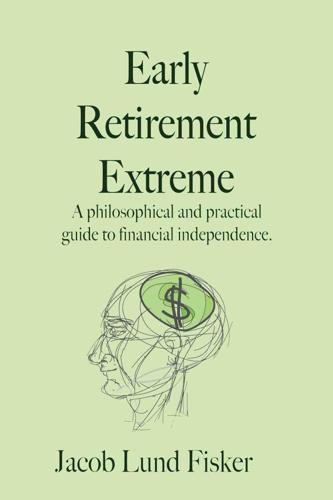
Early Retirement Extreme
by
Jacob Lund Fisker
Published 30 Sep 2010
These can also be classified into tangibles like air, water, food, sanitary, shelter, communication, transport, health, and security, and intangibles, like time, relationships, affiliation, power, and achievement. Some of these, like security and sanitation, we take for granted living in the developed world. For others, except perhaps air and clean water, there's a large range of possible "consumption" levels. For instance, the eating list ranges from roadkill and dumpster diving, to industrially processed "food," to gourmet meals and fine dining. Clothing ranges from going naked to owning just one set of clothes, to owning massive wardrobes full of shoes and tailor-made suits. Transportation ranges from walking barefoot to driving a "hooptie," to private airplanes and megayachts.
…
If the item has no use value whatsoever, it should probably be thrown out or recycled for parts. Fortunately, consumer society has a very good service level when it comes to throwing things out. In principle, you could throw everything in a dumpster. In fact, some people do this--other people live off this bounty through dumpster diving. Giving away If things have some use value but a price close to zero, such as old clothes, garden hoses, or a rusty but working bicycle, they can be given away. There are several systems for this, depending on where you live. One can donate the things to thrift stores, charities, or religious institutions, which may be tax-deductible.
…
Free things In general, people who live a life of abundance, like "primitive" tribesmen (see Human capital and necessary personal assets) or Californians, will be happy to give things away, the latter primarily to create more space in their garages, and the former presumably because they can easily build replacements. Dumpster diving is one method of acquiring free things, but with the Internet, the dumpster part is skipped. Post wanted or offered ads on mailing lists, newsgroups, or in classifieds, and people respond and come to pick it up. This saves the trouble of putting stuff in a dumpster and people from having to dive in to get it; it also saves stuff from the landfill.
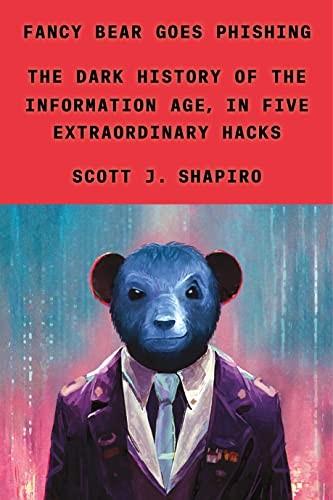
Fancy Bear Goes Phishing: The Dark History of the Information Age, in Five Extraordinary Hacks
by
Scott J. Shapiro
Snoop Dogg is standing: T-Mobile, “Paris Hilton-T-Mobile-Fabric Softener,” AdForum Talent, uploaded by Publicis Seattle, January 1, 2005, www.adforum.com/talent/62231-paris-hilton/work/46280. Hackers are information junkies: Hackers are well-known for “dumpster diving,” searching through dumpsters or trash cans for information. See, e.g., Elizabeth Montalbano, “Hackers Dumpster Dive for Taxpayer Data in COVID-19 Relief Money Scams,” Threatpost, May 7, 2020, https://threatpost.com/hackers-dumpster-dive-covid-19-relief-scams/155537/. See also Michele Slatalla and Joshua Quittner, Masters of Deception: The Gang That Ruled Cyberspace (New York: Harper Perennial, 1995). security information over the phone: Krebs, “Paris Hilton Hack Started.”
…
C2, see Command and Control server CAPTCHA Carroll, Lewis celebrity hacks; see also Hilton, Paris cell phone hacks; see also Hilton, Paris cellular automaton central processing units (CPUs) CFAA, see Computer Fraud and Abuse Act China Chong, Jane Chua, Yi Ting CIA Citizenfour (movie) Clark, Jim Clarke, Richard Clear Web click fraud Clinton, Hillary, campaign (2016): Assange and; DNC hacks and; Fancy Bear phishing and; Guccifer 2.0 hacks and; Putin and; Russian relations and; WikiLeaks and clockwork dolls cloud servers code; Achilles and the Tortoise and; binary strings conversion from; data difference from; duality principle and; instruction pointers and; see also duality principle; metacode; Turing, Alan Coelho, Robert Cohen, Fred Command and Control server (C2) Commander Tosh, see Todorov, Todor Compatible Time-Sharing System (CTSS) CompuServe computer evolution; see also Turing, Alan Computer Fraud and Abuse Act (CFAA); DDoS attacks under; introduction of; Morris, R., Jr., case and; requirements and punishments under consumer product hacking, see Internet of Things Cook, Philip Corbató, Fernando “Corby” Cornell University corporate accountability Corsi, Jerome Cozy Bear/the Dukes CPUs, see central processing units CrowdStrike cryptocurrency, see Bitcoin cryptography crypt program CTSS, see Compatible Time-Sharing System cybercrime: “aging out” of; Bitcoin as payment for; as business; corporate data breaches relating to; cyber-enabled and cyber-dependent; early legislation on; empowerment for protection from; extradition for; FBI Kill Chain for; feelings of helplessness about; financial loss due to; global cooperation on; ignorance to threat of; interoperability issues and; moral duality and; Morris Worm debates on; motivations for; pay-per-install malware and; prevention approaches to; profile and psychology; property crime move to; prosecution and penalties; Secret Service investigations of; solutions and interventions for; traditional crime moving into; war paradigm with; youth as feature of cyberespionage: cybercrime compared to; cyberwarfare role of; DNC hacks and; domestic; economic; international law on; NSA tactics for; SolarWinds cybersecurity: black hat hackers transition to; CTSS and; at DCCC and DNC; after DNC hacks; early World Wide Web and; human behavior as threat to; IoT legislation on; Kill Chain model and; in late 1980s; limits of; metacode limits and; Microsoft efforts in; military; moral duality and; Morris Worm lessons of; Multics and; NSA history and approach to; pre-internet; professionals and job market; Reagan executive order on; scientific internet beginnings and; SEC regulation on; social inequality and; solutionism in; terminology; T-Mobile; UNIX and; upcode role in; upcode solutions for; see also specific topics Cybersecurity and Infrastructure Security Agency cyberwarfare: Clarke book on; costs and impacts of; cyber clubs and; cyberespionage relation to; defining; DNC hacks relation to; election tampering and; hyperspecialized weapons and; laws on; Russian; sensationalizing; by United States; upcode for; war history and future of Dark Avenger: Bontchev and; Eddie virus of; Gordon and; identity of; maliciousness of viruses by; Mutation Engine creation by; Nomenklatura virus of; psychology of; remorse; virus writers’ anger at Dark Web data: breach accountability; code difference from; deep packet inspection of; duality principle and; see also duality principle; metacode DCCC, see Democratic Congressional Campaign Committee Delavan, Charles Democratic Congressional Campaign Committee (DCCC) Democratic National Committee (DNC) hacks: CIA and; Clinton 2016 campaign and; Cozy Bear; cyberespionage and; cybersecurity after; cybersecurity prior to; cyberwarfare relation to; delayed response to; Fancy Bear; FBI investigation of; Guccifer 2.0 and; prosecution for; Putin and; Trump and; WikiLeaks’ publishing of demon Denial of Service attacks, see Distributed Denial of Service attacks Descartes, René DigiNotar Dimov, Peter Distributed Denial of Service (DDoS) attacks; Akamai and; CFAA on; DNS records and; on Estonia by Russia; FBI investigations of; financial motivation in; Krebs as target of; MafiaBoy arrest for; Minecraft and Jha beginning with; Mirai versions and imitators of; Rutgers University; solutions for; 2016 increase of; VDoS gang and; see also botnets; Mirai botnet and gang DNA DNC hacks, see Democratic National Committee hacks DNS records DOS operating system downcode: Achilles and the Tortoise logic and; definition of; of UNIX; upcode interplay with; varieties of drivers duality principle Dukes, the, see Cozy Bear/the Dukes EDVAC election tampering; see also Democratic National Committee hacks; presidential election email: basic principles behind; botnets use in spam; characteristics of fake; early providers of; legitimate Google security alert; spoofing; viruses exploiting; worm in; see also phishing EMPACT ENIAC Equifax espionage; see also cyberespionage Estonia ethical hacking, see white-hat hacking “evil maid” attack Facebook famines Fancy Bear: Bitcoin use by; Bitly use by; DNC hack by; Google accounts phishing by; GRU origins of; hacking mistakes of; heuristics exploited by; Lukashev role in; mudges from; name origins; phishing by; Podesta phishing by; state election infrastructure probes by; typosquatting use by; website security certificates and; X-Agent tool of; Yermakov reconnaissance for Federal Bureau of Investigation (FBI): DNC hack investigations by; evidence-gathering ability of; hybrid duties of; Kill Chain model; LaCroix raid by; Mirai investigation by; Morris Worm and; NSA surveillance role of; search warrants; surveillance of citizens Federal Sentencing Guidelines FidoNet File Transport Protocol (FTP) Finger: function and principles; Markoff revealing Morris, R., Jr., using; Morris Worm attack on firewalls FISA, see Foreign Intelligence Surveillance Act FISC, see Foreign Intelligence Surveillance Court Five Eyes Flood, Warren Foreign Intelligence Surveillance Act (FISA): about; citizen surveillance and; reform; transparency about Foreign Intelligence Surveillance Court (FISC) Forys, Jeff FOSS (free and open-source software) Franceschi-Bicchierai, Lorenzo Frank, Robert FSB (Russian security service) FTP, see File Transport Protocol Gates, Bill: internet products development under; Sinofsky work for; on trustworthy computing and security; Windows creation and; see also Microsoft company gender disparity genetics Genovese, Will German Enigma code Gerrold, David Glickman, Dan Glueck, Sheldon and Eleanor Gödel, Kurt Google: Jha and Mirai attacks on; legitimate security alert from; phishing targeting accounts on Gordon, Sarah: antivirus industry opinions on; background; on Dark Avenger identity; Dark Avenger relationship with; Dedicated virus and; malware report by; virus writers study by government surveillance Graham, Paul: Morris, R., Jr., and; on Morris Worm programming Greenwald, Glenn GRU (Russian military intelligence): Fancy Bear origins in; Guccifer 2.0 identity tied to; hacking department; Mueller indictment on hacking by; poisonings by; scouting and recruitment by Guccifer and Guccifer 2.0 Guidoboni, Thomas hackers: Anonymous hactivist; Bitly used by; bulletin boards; childhood origins of; code and data difference exploited by; conventions and methods of; cyber-enabled and cyber-dependent; definition of; dumpster-diving approach of; global differences of; intervention approaches; Kill Chain model used by; learning from one another; mentors and role models for; misapprehensions about; money laundering and cashing out for; motivation for; 1980s cultural view of; physicality principle exploited by; profile and psychology of; proxies use by; reputation; side-channel attacks used by; upcode; virus writing and; vulnerability announcements exploited by; WarGames influence on; women; see also specific events and individuals hacking; alarmism about; Bluetooth technology; business of; consumer “smart” products; escalation of; “evil maid”; financial damages from; history; IP addresses and; kernels; lingo; for public interest; Russian history and education in; social stigma around; solutionism and; speculative execution; SQL injections and; white-hat/ethical; see also specific topics HAL (fictional computer) Harvard University Hawkins, Adrian heuristics: Affect; Availability; dual-process theories and; Loss Aversion; nudging and; operating systems use of; physicality principle and; Representativeness; survival role of Hilton, Paris: cell phone hack; password weakness and; sex tape; in The Simple Life HIV/AIDS Hupp, Jon Hutchings, Alice IBM computers Imitation Game, The (movie) inequities, social instruction pointers international law internet: attacks and outages; basic function and principles of; browsers design and market for; Clear Web; cybersecurity prior to; Dark Web; deep packet inspection of data over; first graphical browsers for; first major viruses exploiting; FTP and; government agencies and; ignorance of workings of; introduction to public; Microsoft product development for; military; Morris Worm impact on; scientific; solutions for safer; speed of evolution; TCP/IP protocols and; vulnerabilities; website security and; World Wide Web beginnings on; worms and design of Internet Explorer Internet of Things (IoT): botnets hacking; security legislation about; security patches internet service providers (ISPs) IoT, see Internet of Things IP addresses; Dark Web and; definition and forms of; DNS servers and; hacks and; see also TCP/IP protocols Iran ISPs, see internet service providers Jacobsen, Nicholas Jha, Paras: background; click fraud of; cybercrime war and; DDoS attack beginnings; evasion techniques; false-flag operation; financial motivations of; Google attacks by; Minecraft obsession of; as Mirai botnet founder; Mirai code dump; on Peterson influence; Poodle Corp botnet of; ProTraf Solutions launch; Rutgers University DDoS attacks by Jobs, Steve juvenile delinquency Kahneman, Daniel kernel building and hacking Kill Chain Klyushin, Vladislav Kozachek, Nikolay Krafft, Dean Krebs, Brian: DDoS attacks targeting; LaCroix and LaCroix, Cameron: arrests and jail sentences for; background of; FBI raid on; Hilton hack by; Krebs and; parole; post-jail hacks of; psychology and motivation of; Sidekick cell phones of; skill of Laub, John Lavigne, Avril laws and legislation; cryptocurrency; cybercrime punishments; cyberespionage; cyberwarfare; data breaches and; DDoS attacks and; disclosure to public; early cybercrime; government metadata collection; international cybercrime; on IoT security; on NSA data collection; Patriot Ac; on search warrants; software vulnerabilities and; upcode and; on warfare; see also Computer Fraud and Abuse Act; Foreign Intelligence Surveillance Act Lehel, Marcel Lazăr Linux Lohan, Lindsay Loss Aversion Heuristics Lukashenko, Alexander Lukashev, Aleksey Lusthaus, Jonathan macro viruses MafiaBoy malware; Beast; classification and types; coining of term; coordination of computers with; cross-platform; evolution of; Gordon reporting on; hyperspecialization of; Microsoft Word; as national security threat; pay-per-install; selling and acquisition of; viruses contrasted with; X-Agent Russian; see also botnets; viruses; vorms; wiruses; worms Markoff, John Marquardt, David Massachusetts Institute of Technology (MIT): Corbató CTSS invention at; IBM early computers and; Morris as professor at; worm released at Mateev, Lubomir Matrix, The (movie) McGill, Andrew Merkel, Angela metacode metadata: breaches of; government collection of; surveillance capitalism and Microsoft (company); antivirus protection; browsers; copyright suits and; cybersecurity; driver vulnerability approach of; early mission and growth of; internet product development at; legal action against; Minecraft success for; Sinofsky work for; Slivka role at; Winner Take All market and Microsoft Windows Microsoft Word military: cybersecurity; internet; Multics application for; WarGames movie and; see also GRU Milnet Minecraft: about; DDoS attacks and; Jha obsession with Mirai botnet and gang; code dump; DDoS attacks versions and imitators; FBI investigation of; Google attacks by; IoT devices patch and; IoT hacking by; Jha founder of MIT, see Massachusetts Institute of Technology morality Morgachev, Sergey Morozov, Evgeny Morris, Robert, Jr.: background and character of; CFAA and case against; Cornell University attendance and; criminal case against; father’s response to worm of; Graham friendship with; jurors in trial against; lawyer defending; post-trial career of; remorse of; trial testimony of; worm creation motivation of; see also Morris Worm Morris, Robert, Sr.; on Morris Worm creation; NSA job of; UNIX developments by Morris Worm; attack vectors; Bulgarian media on; computer community debates over; cybercrime debates and; cybersecurity actions after; duality principle exploitation with; FBI investigation of; Finger attack by; flaw in code; impact; lessons and increased security from; media coverage on; Melissa virus compared with; motivation for creating; origins; password discovery by; patch for and eradication of; programming of; reinfection rate of; SENDMAIL attack by; Sudduth warning email about Mosaic browser movies and television: artificial intelligence portrayal; Citizenfour (movie); cybersecurity early portrayals in; cyberwar themes in; The Imitation Game; The Matrix; Mr.

Show Your Work!: 10 Ways to Share Your Creativity and Get Discovered
by
Austin Kleon
Published 6 Mar 2014
There isn’t a big unifying principle to the collection, just what Molina likes. He gets submissions from some of his fellow workers, but he says what goes on the wall and what doesn’t. “I tell the guys, just bring it in and I’ll decide if I can hang it.” At some point, Molina painted a sign for the museum that reads treasure in the trash by nelson molina. “Dumpster diving” is one of the jobs of the artist—finding the treasure in other people’s trash, sifting through the debris of our culture, paying attention to the stuff that everyone else is ignoring, and taking inspiration from the stuff that people have tossed aside for whatever reasons. More than 400 years ago, Michel de Montaigne, in his essay “On Experience,” wrote, “In my opinion, the most ordinary things, the most common and familiar, if we could see them in their true light, would turn out to be the grandest miracles . . . and the most marvelous examples.”
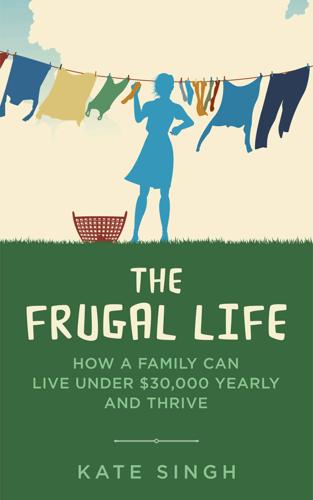
The Frugal Life: How a Family Can Live Under $30,000 and Thrive
by
Kate Singh
Published 31 May 2019
I've had to live on shoestring budgets before (while paying off large debts) and when my husband and I married, I wanted to be a housewife and stay home with my babies so I learned everything I could to make that little paycheck stretch. I want to make something clear to those who are new to living this way. Frugal living is not cheap living. It's not giving up everything and spending your days clipping coupons and dumpster diving (unless you want to, and that does save money). It’s not staying home on weekends, eating porridge and crying over the good life that you just don't have. I often stand in my home and feel this wondrous bliss and gratitude for our life. I'm not in a big house, or a perfect neighborhood, or in an upscale town.
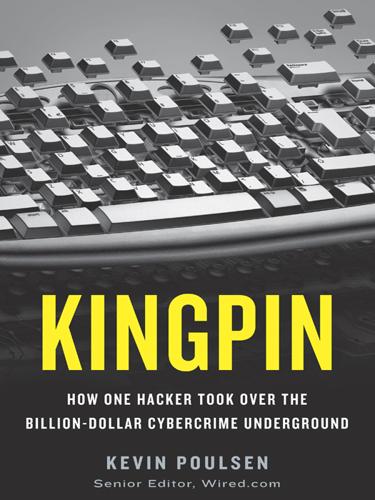
Kingpin: How One Hacker Took Over the Billion-Dollar Cybercrime Underground
by
Kevin Poulsen
Published 22 Feb 2011
Max shared his discovery with Chris, who was fascinated. Chris logged on to the forums and studied the content like a textbook. A lot of things hadn’t changed since he’d dealt in credit card fraud in the 1980s. Other things had changed a lot. There was a time when crooks could literally pull credit card numbers from the trash by Dumpster-diving for receipts or the carbon-paper slips left over from retailers’ sliding imprint machines. Now mechanical imprinting was dead, and Visa and MasterCard insisted that receipts not include full credit card account numbers. Even if you got the numbers, that was no longer enough to make counterfeit cards.
…
Credit leader Visa held up an industry-funded report by Javelin Strategy and Research that claimed consumers, not companies, were the source of the vast majority of identity theft and credit card fraud cases: Some 63 percent of cases originated with consumers, primarily victims of lost or stolen wallets, followed by theft by trusted associates, stolen mail, and Dumpster diving. The report was grossly misleading, only tallying cases in which the victim knew how his information had been stolen. Visa’s private numbers told the real story. Stolen wallets hadn’t been the primary source of fraud since mid-2001, when credit card theft from e-commerce sites sent fraudulent “card not present” transactions—online and telephone purchases—rocketing up the chart, while every other category held steady.
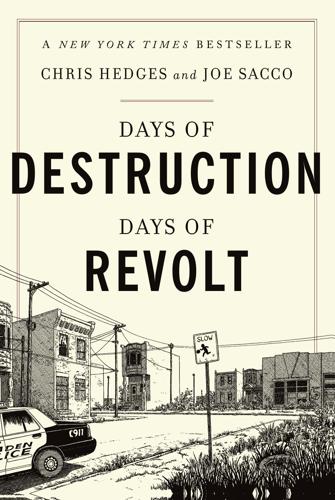
Days of Destruction, Days of Revolt
by
Chris Hedges
and
Joe Sacco
Published 7 Apr 2014
Arriving on the first day of the occupation in Zuccotti Park, he found other “traveler types” whose survival skills and political consciousness were as developed as his own. In those first few days, he says, “it was the radicals and the self-identifying anarchists” who set up the encampment. Those who would come later, usually people with little experience in Dumpster diving, sleeping on concrete, or depending on a McDonald’s restroom, would turn to revolutionists like Friesen for survival. Zuccotti Park, like most Occupied sites, schooled the uninitiated. “The structure and process carried out by those initial radicals,” he says with delight of the first days in the park, “now have a wide appeal.”
…
The big decision we made was to announce to the group that if we were dispersed, we were going to meet back at 10 A.M. the next day in the park. Another group was arts and culture. What was really cool was that we assumed we were going to be there more than one night. There was a food group. They were going Dumpster diving. The direct action committee plans for direct, visible action like marches. There was a security team. It’s security against the cops. The cops are the only people we think might hurt us. The security team keeps people awake in shifts. They always have people awake. The working groups make logistical decisions, and the general assembly makes large policy decisions.
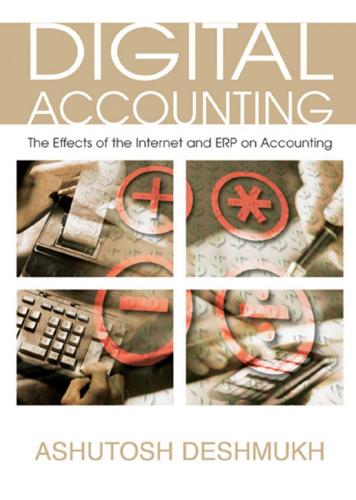
Digital Accounting: The Effects of the Internet and Erp on Accounting
by
Ashutosh Deshmukh
Published 13 Dec 2005
Hackers will also shoulder-surf near pay phones or ATMs and steal credit card numbers and other identification information. • Dumpster diving: This activity involves going through company dumpsters and collecting discarded information. Things discarded by a company may include directories, organizational charts, computer disks, system manuals, security policies and printouts. These things may be used to glean information about personnel on duty, computer system, default passwords and security environment. A hacker gave the following illustrative guidelines on dumpster diving: Park your car a couple of blocks away, do not carry ID or wallet with you, carry a trash bag filled with cans to claim that you are collecting cans, and wear dark-colored clothes
…
Firewalls do not protect against attacks that bypass firewalls. This may seem like a truism, which it is, though there are many corporations having strong firewalls but no policies on modems that dial in and out of the organization. Firewalls also do not protect against careless employees, social engineering, dumpster diving and failure to apply the latest security patches. Firewalls will not protect against theft of information if CDs are used to copy and take the information out of the corporation. Viruses are also hard to stop Exhibit 13. Firewalls Public networks Firewall Secure network Firewall Public networks Firewall Public networks Copyright © 2006, Idea Group Inc.
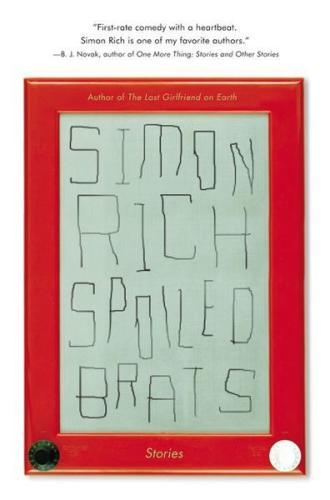
Spoiled Brats: Short Stories
by
Simon Rich
Published 14 Oct 2014
Another one squints at my wool and pokes his fingers at the buttons. “Where’d you get this?” he asks. “Housing Works?” “I make it from old rags,” I admit. For some reason, this pathetic fact impresses them. “That’s rad,” they say. “Talk about DIY.” “I am very hungry,” I say. “You came to the right place,” says the man with the longest beard. “We’ve been Dumpster diving all semester, and this place is by far the sickest.” I do not want to become sick, but my hunger is extreme. I say a quick prayer and then dive inside the trash bin. “Oh my God,” I say when my eyes adjust to the light. “There is so much food!” “I know,” says the long-beard man. “Have you ever seen anything so fucking First World?

How to Blow Up a Pipeline
by
Andreas Malm
Published 4 Jan 2021
A reader well versed in the history of Northern environmentalism will by now have asked: then what about the ecologists who practised sabotage on some scale from the 1980s to the early 2000s? Those were the days of Earth First!, Animal Liberation Front and Earth Liberation Front. Their campaigns of ‘monkeywrenching’ or ‘ecotage’ prospered in a certain subculture that reached its apogee in the 1990s, mingling punk and hardcore with dumpster diving and veganism, spiritual voyages and holistic medicine with squatting and guerrilla gardening, fanzines with herbs. The EF!, ALF and ELF drank from two ideological wells: deep ecology and animal liberation. Both have lost their street cred since then. Neither has much bearing on the climate crisis.

One Less Car: Bicycling and the Politics of Automobility
by
Zack Furness
and
Zachary Mooradian Furness
Published 28 Mar 2010
For this latter contingent, the eight days surrounding the demonstration doubled as the Bike national Convention, a series of events hosted by new york City’s direct action environmental group, Time’s Up! Bicyclists both organized and participated in free bike maintenance workshops, direct action planning sessions, a bicycle carnival, and various group rides, including a scenic jaunt through the city’s parks, a “dumpster diving” tour of lower Manhattan, and radical history tours of community gardens, squats, and famous protest sites dotting the lower East Side.1 Before the start of the republican convention, the visiting two-wheeled politicos joined bike riders from the five boroughs to take part in Critical Mass, a monthly bike ride/ritual held on the last Friday of every month in cities throughout the world.
…
It is not the tool but the user of the tool that we despise.50 Then as now, anti-car/anti-oil messages resonate with many punks and corresponded with a wider acceptance of bicycling as a politicized alternative to automobiles. Moreover, bicycles are cheap, and economic thrift is a serious factor within a subculture that actively promotes dumpster diving, squatting, and, in some cases theft, as an alternative to alienated labor.51 in addition, there was as already a substantial crossover between bike messenger and punk subcultures on the West Coast in the 1990s, particularly in the San Francisco Bay area, where bike messengering was one of the few professions that “allowed people with mohawks to earn a living.”52 not all bike messengers were or are punks, but the crossover made bicycling more visible in the punk scene and punk ethics/practices more visible among bike messengers.
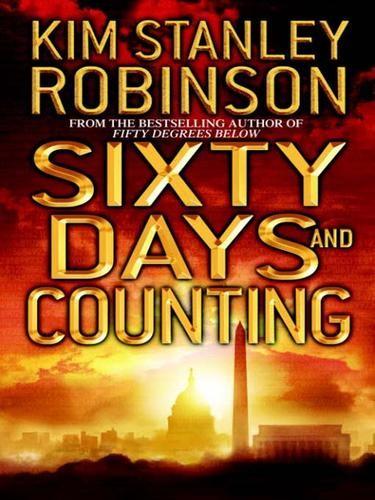
Sixty Days and Counting
by
Kim Stanley Robinson
Published 27 Feb 2007
Spencer started calling Frank on his FOG phone to let him know where they would be that night, and Frank started leaving work at more or less the normal time, using a wand Edgardo gave him to see that he was clear, then meeting Spencer in the park, running a frisbee round, then walking somewhere in Northwest to the rendezvous of the night. Once or twice Frank joined the dumpster-diving teams, and was interested to learn that most restaurant dumpsters were now locked shut. But this was to satisfy insurance-company liability concerns more than to keep people from the food, because for every dumpster they visited they had either the key or the combination, provided by kitchen workers who were either sympathetic or living the life themselves.
…
It didn’t happen that evening. There was much talk of how the jaguar might have survived the winters, whether it had inhabited one of the caves in the sandstone walls of the ravine, and eaten the deer in their winter laybys, or whether it had found a hole in an abandoned building and then gone dumpster diving like the rest of the city’s ferals. All kinds of excited speculation was bandied about (Frank stayed quiet when they discussed the feral life), but no sighting. Nick was getting a ride home with his friend Max, and so Frank walked south, down the ravine toward the zoo. And there it was, crouching on the overlook, staring down at the now-empty salt lick.
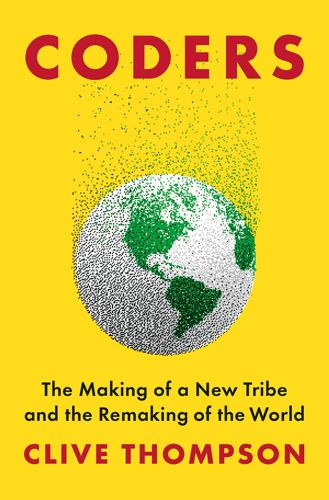
Coders: The Making of a New Tribe and the Remaking of the World
by
Clive Thompson
Published 26 Mar 2019
The pioneering computer scientist Seymour Papert had a koan: No program works right the first time. Spectre discovered this the hard way in his early jobs. Raised in a working-class family in an 800-person Kansas town, he taught himself programming using library books in the early ’90s, on computers he built from parts scavenged during dumpster diving outside his high school. After graduating with a degree in history, English, and philosophy, he went to work building Flash web pages for a car-dealer’s website—which eventually led to a gig working for a game company in San Francisco. It felt like the big leagues; he’d told his grandmother as a kid in the ’90s how he dreamed of working for a Silicon Valley company.
…
“We wanted to get access to the high technology we otherwise wouldn’t have access to, understand it, and learn to program it.” Getting that sort of access, though, required some straight-up digital trespassing and illegal activity. Members in Abene’s hacking group would share passwords to corporate systems that they’d digitally cracked (or discovered during old-fashion dumpster diving in the company’s trash). Abene and his colleagues eagerly shared info on reprogramming phone systems. And this is where federal officials began to perk up their ears. The telephone companies and government were worried they were losing control of this weird nascent new realm, “cyberspace.” So they swooped in on Abene and his group, “Masters of Deception.”

Meet the Frugalwoods: Achieving Financial Independence Through Simple Living
by
Elizabeth Willard Thames
Published 6 Mar 2018
Could we actually embrace living on less for the long term? Neither of us wanted to sell all of our possessions and go live in a yurt, but we also felt lied to by our “treat yourself” culture that parrots consumption as the cure for what ails. We needed to find a tenable middle ground between dumpster diving for our food and embracing the rampant, gratuitous spending that’s considered normal and even necessary in our culture. Since most budgeting programs are based around the premise of bumping their acolytes up from a 0 percent savings rate to a 5 or 10 percent rate, and Nate and I were angling to boost what was already a 45 to 50 percent savings rate, we decided to strike out and create our own system.
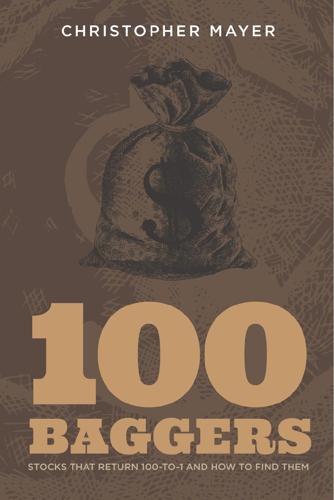
100 Baggers: Stocks That Return 100-To-1 and How to Find Them
by
Christopher W Mayer
Published 21 May 2018
If the price–earnings ratio falls to 25, then you need earnings to rise 200-fold. Don’t make investing so hard. We saw earlier in our case study of Gillette how a price–earning ratio collapse from 20 to 10 blunted the return investors got from Gillette’s earnings growth. But on the other hand, you shouldn’t go dumpster diving if you want to turn up 100-baggers. Great stocks have a ready fan club, and many will spend most of their time near their 52-week highs, as you’d expect. It is rare to get a truly great business at dirt-cheap prices. If you spend your time trolling stocks with price–earnings ratios of five or trading at deep discounts to book value or the like, you’re hunting in the wrong fields—at least as far as 100-baggers go.

Fewer, Better Things: The Hidden Wisdom of Objects
by
Glenn Adamson
Published 6 Aug 2018
Surprisingly, this turns out to be a lot easier in cities than it is in the countryside, because of the huge amount of waste that occurs in urban settings. One acquaintance of mine in London, Katharine Hibbert, decided to spend as little money as possible for a period of a year, then wrote a book about the experience.1 During her time living “on the margins of a wasteful society,” she acquired her furniture and home goods by Dumpster diving. She squatted in an abandoned building (which is legal in the UK). She even managed to take a vacation by hitching rides. The neologism “freegan” is a play on the term “vegan,” and as that implies, much of the movement concerns food, rather than objects. Astonishing amounts of perfectly good food are thrown out every day: In the course of a year, according to Hibbert, Britain alone produces twenty million tons of edible waste.

Bernie Madoff, the Wizard of Lies: Inside the Infamous $65 Billion Swindle
by
Diana B. Henriques
Published 1 Aug 2011
When aroused, however, he could employ his words like a blowtorch. In his view, justice had to incorporate “the simple dictates of humanity,” or it was not justice. This meant that the only just definition of net equity was one that provided SIPC money to Madoff victims who otherwise “will have to continue living on welfare or dumpster diving.” If destitution was the result of Picard’s net equity formula—as it would be for some as-yet-unknown number of victims—then Picard’s formula could not possibly be just. Chaitman and Velvel became two of the most visible champions of the unlucky “net winners”. Their analysis of the New Times case was passed back and forth by e-mails and supplied to reporters as infallible doctrine.
…
SIPC had already ruled that the Madoff victims were entitled to be treated as customers with claims for securities, not cash. 263 the Massachusetts School of Law in Andover: The law school had state permission to award law degrees but was not accredited by the American Bar Association. 263 “will have to continue living on welfare or dumpster diving”: The quotation is from Velvel’s blog, hereafter known as www.velvelonnationalaffairs.blogspot.com. 265 were generally considered fair: See, for example, the editorial “Mr. Feinberg and the Gulf Settlement,” New York Times, Aug. 29, 2010. 265 a similar approach was taken, with the same special master appointed: Campbell Robertson and John Schwartz, “Rethinking the Process for BP Spill Claims,” New York Times, Sept. 15, 2010.
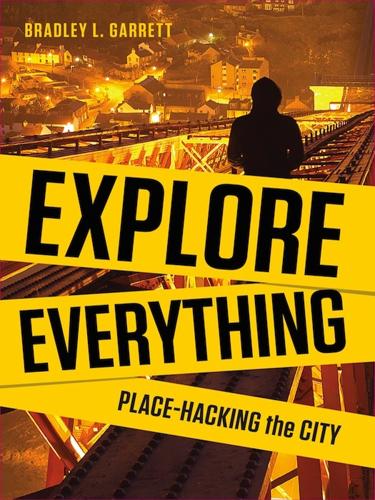
Explore Everything
by
Bradley Garrett
Published 7 Oct 2013
As early as the 1980s, the term ‘hacking’ was applied to physical space by the Technology Hackers Association at MIT, who learned to pick locks and infiltrate the steam tunnels underneath the university. The same students began climbing rooftops on campus, bringing freshmen on what is called the Orange Tour, where a group of hackers wearing t-shirts stating ‘I am not here’ circumvented campus security for unsanctioned views after midnight.41 The celebrated hacker Kevin Mitnick used to Dumpster-dive in Los Angeles and find old bus passes, and after acquiring a punch-hole device identical to that of the LA Rapid Transit Authority, he would stamp out free bus transfers for passengers.42 It wasn’t until relatively recently that the term ‘hacking’ was appropriated by the virtual computing community.

I Keep My Exoskeletons to Myself: A Novel
by
Marisa Crane
Published 17 Jan 2023
He’s trying to keep his cool but he’s bubbling with excitement. “But before we go,” says the kid, holding up her pointer finger. “We’re going to make a statement.” That perks everyone’s ears right up. ◼ I grab Bear’s confiscated graffiti materials from my closet and bring them out into the courtyard, away from any cameras. We go dumpster-diving and secure a few large cardboard boxes from TVs and bookshelves and fridges. Once we have enough practice canvasses, Bear and I argue about what the message should say. “No, they won’t get it.” “Who is they?’ “You know, they. The Department.” “That sounds like it’s about a fish.” “You sound like you’re about a fish.”
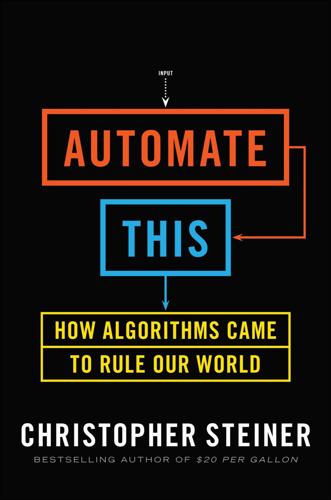
Automate This: How Algorithms Came to Rule Our World
by
Christopher Steiner
Published 29 Aug 2012
O’Connor & Associates, also in Chicago, was employing very similar tactics to Peterffy’s, outfitting its traders with cheat sheets for valuing options and supplementing that information with computers that constantly crunched data upstairs while piping new numbers down to the pits. O’Connor was so secretive about its methods that when it bought two hundred Symbolics computers in the mid-1980s, executives shredded the packaging so Dumpster-diving competitors couldn’t determine what technology the firm used.6 THE ALGORITHMS SPREAD COAST TO COAST By 1987, index funds, which tracked groups of stocks such as the S&P 500, had grown popular not only with the public but also with professional traders. But certain indexes, the S&P 500 included, could only be licensed for trade in one market.
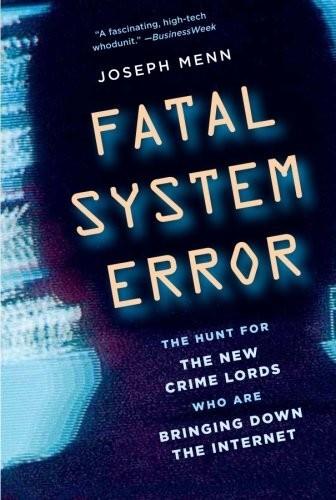
Fatal System Error: The Hunt for the New Crime Lords Who Are Bringing Down the Internet
by
Joseph Menn
Published 26 Jan 2010
Others in the U.S. acted as cashers, pillaging ATMs or using their U.S. addresses to receive goods purchased with fake credit card information. Then they resold the goods and shipped most of the profit overseas. “All [the Americans] had back then was just making novelty identification things, dumpster diving, a few small-time hacks here and there, and then a lot of shit-talking,” said fraudster turned FBI informant David R. Thomas, who went by El Mariachi on the boards. “On the Russian side it was more effective, businesslike. They were workaholics. They could pile up millions of dollars and they would still be pounding away at the keyboard 14 hours a day.”
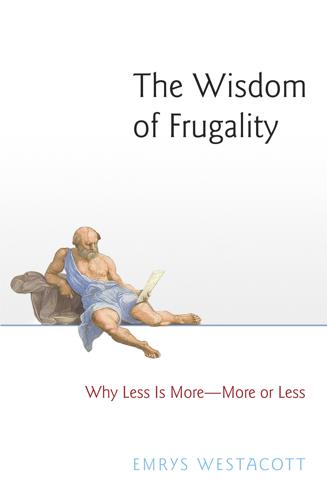
The Wisdom of Frugality: Why Less Is More - More or Less
by
Emrys Westacott
Published 14 Apr 2016
His thought captures not just the easy and equal accessibility of the pleasures nature offers but also their inexhaustibility. Delight in the natural world may be neither universal nor necessarily correlated with a commitment to frugality or simplicity. Some urban frugal zealots get their greatest pleasures from dumpster diving, trash picking, and finding bargains in thrift stores. But it is so common that anyone unable to appreciate nature is generally viewed as strange. And most of those who advocate simplicity certainly see a connection to nature as essential to their physical and mental well-being. The benefits people derive from this connection are not reducible to a simple enjoyment of nature’s beauty.
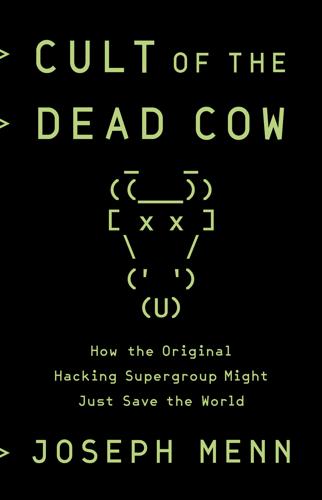
Cult of the Dead Cow: How the Original Hacking Supergroup Might Just Save the World
by
Joseph Menn
Published 3 Jun 2019
But it also kept the brothers from getting drunk and getting in trouble outside their house. Kevin later told a friend that KGB “had some nutty retardo sex & violence stuff and some kinda phreaking thing about MCI,” referring to the telephonic equivalent of computer hacking. Brandon had more technological ambition than Kevin. He went dumpster diving outside big company offices, looking for anything that would help him break electronically into those businesses. He also used “blue boxes,” which were prime devices for phreaking. They emitted tones over phone lines to rig free long-distance calls. A favorite game was to keep transferring calls to stations farther along in the same direction, eventually circumnavigating the world to ring a second phone in his own house.

The Joy of Less, A Minimalist Living Guide: How to Declutter, Organize, and Simplify Your Life
by
Francine Jay
Instead of toiling away as consumers, we can become “minsumers” instead: minimizing our consumption to what meets our needs, minimizing the impact of our consumption on the environment, and minimizing the effect of our consumption on other people’s lives. Becoming minsumers doesn’t mean we can never set foot in a store again. I don’t know about you, but I’m not that comfortable foraging or dumpster diving for the stuff I need—and I certainly don’t expect to get anything for free. I appreciate the ease with which we can obtain basic necessities, and the fact that (unlike our ancestors) we don’t have to devote our days to securing food, clothing, and shelter. However, I believe that once these needs are met, consumption can be put on the back burner.
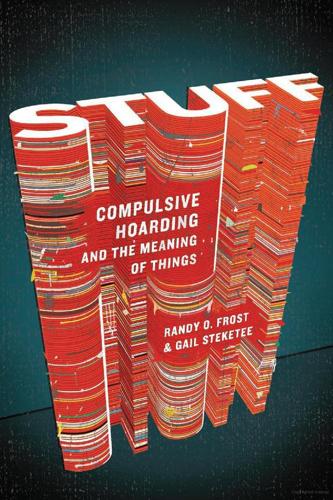
Stuff: Compulsive Hoarding and the Meaning of Things
by
Gail Steketee
and
Randy Frost
Published 19 Apr 2010
Like Irene dodging newsstands, Janet often averted her eyes when she neared the cosmetics aisle. Others avoid whole sections of town because of a store that is too hard to resist when they are in the vicinity. Invariably, avoidance of this sort fails; it is almost impossible to get away from buying signals in our increasingly consumer-driven world. Dumpster Diving and Free Stuff Even for those unwilling to spend like Janet, there are plenty of pitfalls. For example, Phil from the Dateline episode could not resist the urge to scavenge through the neighborhood trash. Even the teasing his children received from other kids in the neighborhood was not enough to get him to stop.
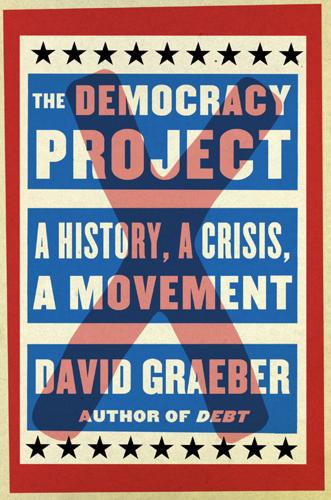
The Democracy Project: A History, a Crisis, a Movement
by
David Graeber
Published 13 Aug 2012
Partly this was because, inspired by the example of the Egyptian labor unions who had sent pizzas to fellow union activists occupying Wisconsin’s statehouse some months before, hundreds of people across North America and beyond reached for their credit cards and began phoning in orders for pizzas. (By week three, one local pizzeria had already created a pie especially for us: dubbed the “Occu-pie,” it consisted, they said, of “99 percent cheese, 1 percent pig.”) Much of the food was Dumpster-dived, all of it was offered free. But the libraries that cropped up everywhere were if anything even more potent symbols, especially for a population whose core was indebted former students. Libraries were immensely practical but also perfectly symbolic: libraries provide free loans, no interest, no fees—and the value of what they are lending, of words, images, above all, ideas, is not based on a principle of limited good, but actually increases with their dissemination.
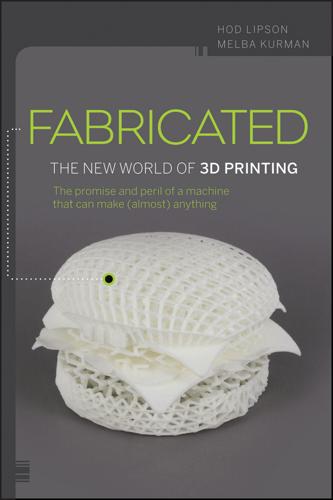
Fabricated: The New World of 3D Printing
by
Hod Lipson
and
Melba Kurman
Published 20 Nov 2012
The Lab’s student organization, Washington Open Objects Fabricators Club (also known as “WOOF”), designed and printed a boat and entered it into the Milk Carton Derby, a high-profile boat race that’s part of Seattle’s annual Seafair Festival. Derby race rules are strict. Only the following cartons may be used to provide flotation: half gallon and one gallon plastic and paper jugs that held milk or juice. The WOOF team began work on their boat weeks before the race, in a dumpster. Students went dumpster diving and hauled nearly 40 pounds of plastic jugs back to the lab. They ground the plastic jugs into fine powder and hacked a 4-by-8-foot plasma cutter with a homemade extruder. To power the printer’s plastic extruder, undergraduate Matthew Rogge ripped out the windshield wiper motor from his Subaru.
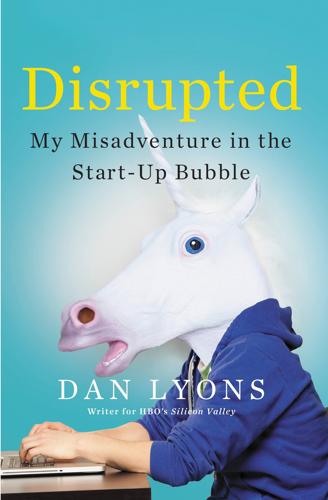
Disrupted: My Misadventure in the Start-Up Bubble
by
Dan Lyons
Published 4 Apr 2016
Days after that conversation, however, Cash got a call from an assistant U.S. attorney who said she was investigating the case with agents from the FBI’s cyber crime division. I met with them in September 2015. Even after the meeting, I still had no idea what HubSpot had done. Later I would hear some crazy stories. One was that the spying involved “Dumpster diving,” meaning that Volpe, or someone working for him, had gone to my house and dug through my trash, trying to find a manuscript. I tried to imagine Volpe out in my driveway in the middle of the night, digging through bags of used cat litter. I didn’t know whether to laugh or to cry. Another story, told to me by several present and former HubSpot employees, is that when Volpe was fired, HubSpot held an all-hands meeting to explain the news to employees, and Halligan and Spinner were sobbing.
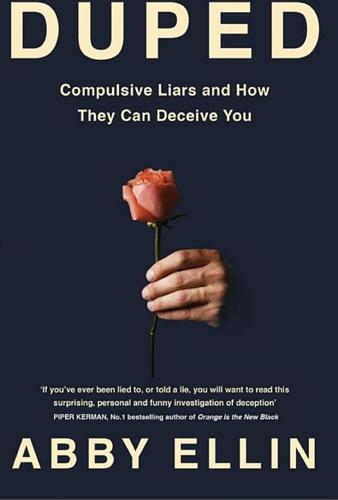
Duped: Double Lives, False Identities, and the Con Man I Almost Married
by
Abby Ellin
Published 15 Jan 2019
Crashed under stairwells on the University of Washington campus, tiptoeing around the library in his socks in the middle of the night. He felt elated, “finally riding the gap between thought and action,” as he put it. He and his activist friends lived hunter-gatherer existences in the lap of luxury: squatting in mansions, shoplifting, dumpster-diving from Trader Joe’s. He figured out how to get everything from phone cards to food for free. His mantra: “Young till I die.” ONE DAY WHILE he was loitering at the university, a scruffy guy in a knit cap approached him and invited him to a meeting of an animal rights group, Students for Animal Liberation.
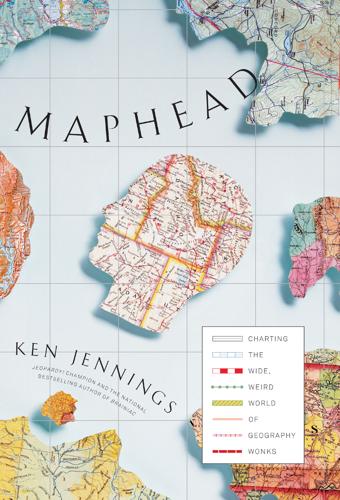
Maphead: Charting the Wide, Weird World of Geography Wonks
by
Ken Jennings
Published 19 Sep 2011
“THIS IS A VERY DIFFICULT SLOPE,” warns the hider’s description in stern capital letters. “DO NOT ATTEMPT THIS CACHE ALONE.” He also reminds me that I’m under no obligation to seek his cache, that he assumes no liability in the event of my untimely death or mangling disfigurement, etc. No more Dumpster diving—this is the cache for me! That weekend, I dig out my hiking boots and some old work gloves and drive up to Hard Scrabble Falls. I’ve never been on this highway before, so I’ve brought some printouts of other nearby geocaches I might pass along the way. But the five-star cache is the first order of business.
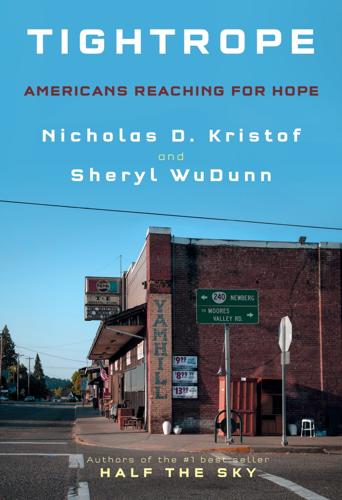
Tightrope: Americans Reaching for Hope
by
Nicholas D. Kristof
and
Sheryl Wudunn
Published 14 Jan 2020
“Sometimes I get kind of lost in my own head, you know. My mind kind of wanders. I can never remember what day it is.” He said he earns about $10 a day by collecting cans and bottles for deposits and eats meals at church soup kitchens (including one that Nick’s mom volunteers at). He supplements this by dumpster diving for food: “If I’m hungry, hungry, hungry, I’ll eat it.” He had food stamps but was suspended for a year when he let a friend, while shopping for both of them, use his card. Ebullient just as he had been as a boy, Mike regaled us with stories about heroic military deployments, about a Purple Heart and “Medal of Valor,” about a bullet wound in the stomach from combat in Central America.
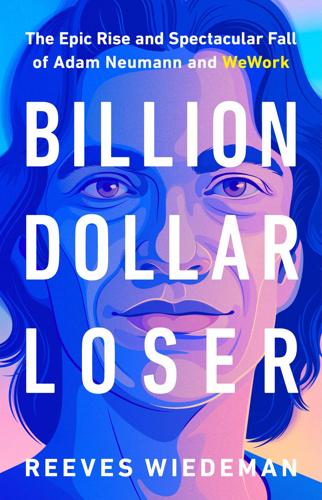
Billion Dollar Loser: The Epic Rise and Spectacular Fall of Adam Neumann and WeWork
by
Reeves Wiedeman
Published 19 Oct 2020
The mothers were community organizers and activists, dragging their kids to antiwar protests; when they had to get jobs, Lucia explained to Miguel, “We were all smart enough to fake our résumés.” (Much later, Miguel would cite What’s Happening, the local events newspaper his mother started, as a foundational example of how to engage your community in an entrepreneurial way.) They went dumpster diving behind grocery stores and otherwise subsisted largely on food stamps, splurging for an annual trip to King’s Table Buffet, where Miguel ate bowls of soft-serve until he felt sick. For entertainment, he made a game out of dropping bouncy balls through the holes in the rusted floor of the family Volvo and watching them bound down the road.
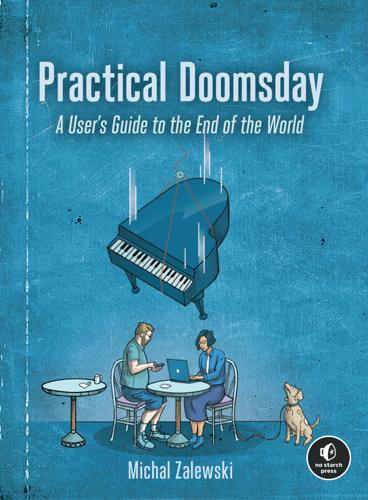
Practical Doomsday: A User's Guide to the End of the World
by
Michal Zalewski
Published 11 Jan 2022
If that’s your plan, be sure to make the proper accommodations—such as carrying extra batteries for flashlights or headlights. Food and Water in the Wild The topics of foraging and hunting dominate survivalist lore. In my view, it’s a folly to think one would be able to live off the land when bugging out. In populated areas, wild sources of food are scarce—that is, unless we consider dumpster diving to be a foraging technique. In the wilderness, the story is messy too. In some parts of the world, wild fruit or nuts can provide reasonable nourishment, but only for a brief portion of the year. Otherwise, munching on leaves, bark, or grass is mostly a waste of time: just because a plant is edible doesn’t meant that it packs any calories.
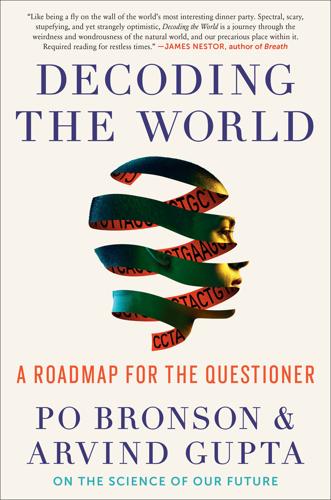
Decoding the World: A Roadmap for the Questioner
by
Po Bronson
Published 14 Jul 2020
And even when you imagined “Biotechnology Lab,” the mind conjured the carefully manicured, perfectly architected UC San Francisco biotech center. IndieBio wasn’t an ivory tower. It was an ivory basement. IndieBio was on Jessie Street. Jessie Street is basically around the corner from Crack & Whore, where everyday street life included dumpster diving, gutter syncope, and sidewalk vomit. IndieBio is below a methadone center. It’s next to an apparel sweatshop factory. Across the alley is a massive steam boiler that serves all downtown with heat. When you finally find the IndieBio door, getting off Jessie Street is a relief, and for a moment it’s a sanctuary.
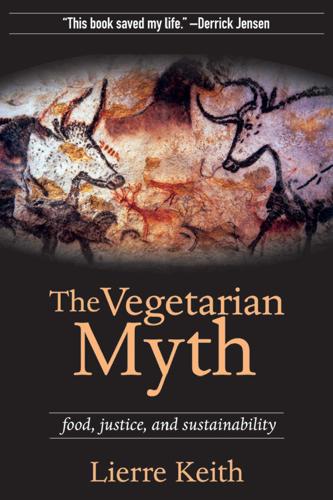
The Vegetarian Myth: Food, Justice, and Sustainability
by
Lierre Keith
Published 30 Apr 2009
I slipped back and forth across a very narrow ethical line, aghast at my own willingness to even consider participating in domestication, which was by definition the exploitation of animals. How could I stop the insects that were after my food? Chickens and ducks were the permaculture answer, in complete opposition to the vegan answer. And what about the fertilizer? Maybe I could find another source of unused manure. Well, maybe I could, but that’s like suggesting dumpster diving as a solution to economic oppression. I’d only be skimming the excess and pretending. The basic fact remained: somebody had to keep those cows and goats so I could use the manure. Animals, exploited for milk, meat, and eggs, were necessary for my food, whether I kept or ate them or not. Maybe—I inched toward the side of evil—maybe I could have them without exploiting them.
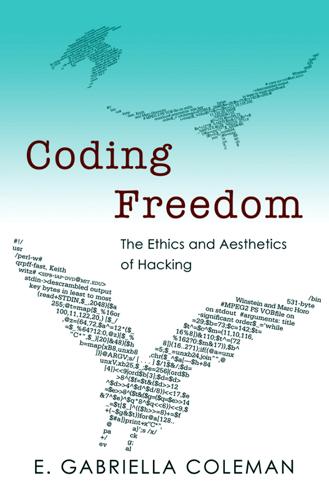
Coding Freedom: The Ethics and Aesthetics of Hacking
by
E. Gabriella Coleman
Published 25 Nov 2012
Even as a kid, his victims were a diverse lot: his homeroom teacher, the phone company, and even the Los Angeles Rapid Transit District. After he bought the same device used by bus drivers for punching transfers, he adopted the persona of Robin Hood, spending hours riding the entire bus network, punching his own pirated transfers to give to customers. He found transfer stubs while dumpster diving, another time-honored hacker practice for finding information that was especially popular before the advent of paper shredding. Despite the way that lawyers and journalists had used Mitnick’s case to give hackers a bad name, Mitnick clearly still used the term with pride. When I finished my story describing what I personally thought was a pretty engrossing speech, one hacker, who obviously disapproved of my reference to Mitnick as a “hacker,” replied, “Kevin is not a hacker.
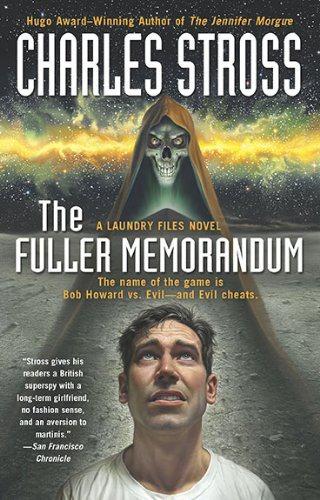
Fuller Memorandum
by
Stross, Charles
Published 14 Jan 2010
--I find Angleton's original spidery scrawl, numbers swimming before my eyes like exotic fish. Ten numbers. I go through them checking off the files I've got, until I identify the number that's missing. 10.0.792.560. Right. I call up the requisition and look for 10.0.792.560. Sure enough, it's there. So I ordered it, but it isn't in my office. Double shit. I dumpster-dive the transaction file, looking for my request: Did they fill it? Oh. Oh my. DOCUMENT NOT FOUND ON DESIGNATED SHELF. I just about faint with relief, but manage to force myself to pick up the phone and dial the front desk number. "Hello? Archives?" The voice at the far end is female, distracted, a little squawky, and all human--for which I am grateful: not all the archive staff are warm-blooded.

The Raging 2020s: Companies, Countries, People - and the Fight for Our Future
by
Alec Ross
Published 13 Sep 2021
After teaching himself to use a forge and anvil, Chouinard started fashioning handmade steel pitons (the spikes climbers drive into walls to hold their rope) and selling them to fellow climbers from the back of his car for $1.50 apiece. His equipment became the gold standard for “big wall” climbing, but Chouinard did not let success change his lifestyle. He lived out of his car, sustained by cat food, dumpster diving, and small game he could kill with his climbing tools. Any profits he made went primarily to climbing and surfing trips. By the 1960s, Chouinard Equipment Ltd., then headquartered in the chicken coop in his parents’ backyard, expanded to other climbing equipment and apparel. When the clothing business took off in 1973, Chouinard and his wife Malinda spun it into a new company, Patagonia.
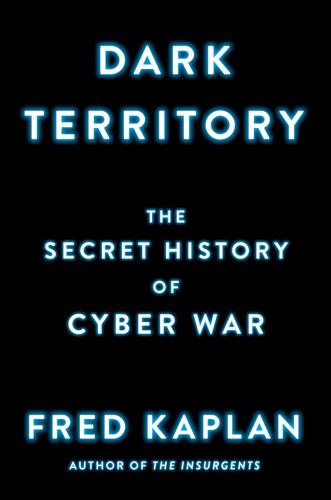
Dark Territory: The Secret History of Cyber War
by
Fred Kaplan
Published 1 Mar 2016
Others were protected by the lamest passwords, like “password” or “ABCDE” or “12345.” In some cases, the Red Team snipped all of an office’s links except for a fax line, then flooded that line with call after call after call, shutting it down. In a few instances, NSA attachés—one inside the Pentagon, the other at a Pacific Command facility in Hawaii—went dumpster diving, riffling through trash cans and dumpsters, looking for passwords. This trick, too, bore fruit. The team had the hardest time hacking into the server of the J-2, the Joint Staff’s intelligence directorate. Finally, one of the team members simply called the J-2’s office and said that he was with the Pentagon’s IT department, that there were some technical problems, and that he needed to reset all the passwords.
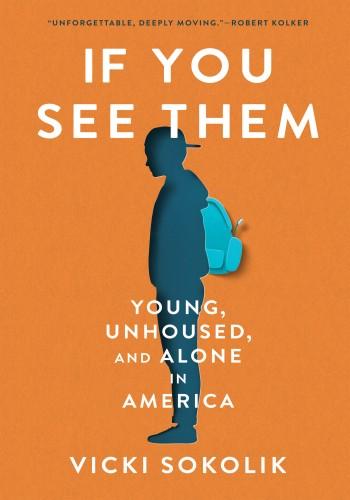
If You See Them
by
Vicki Sokolik
Published 23 Nov 2023
And then my sister told me that she and her boyfriend were moving. I had two days to pack up my stuff and get out. I didn’t have a car. I didn’t even have a driver’s license. So Janice offered to take me to find boxes for my move. She drove me to a liquor store, ABC Liquor in Brandon, and we went dumpster diving. Janice said liquor-store boxes were sturdy, just what I needed. And she was right. Taylor came to lean on Janice more and more. There were academic issues to work out. Taylor had been to four different high schools and had missed much of her sophomore year. If she wanted to graduate on time, she had two years’ worth of credits to make up as a senior.

Merchants' War
by
Stross, Charles
Published 30 Sep 2007
Or they'll mount a watch on the trash?" "No." Eyes twinkled in the darkness. "Because first, you didn't make a move on my daughter when you had the chance. And second, have you any idea how many warm bodies it takes to mount a twenty-four/seven watch on a trash can? One that's capable of grabbing a dumpster-diving world-walker without killing them?" "I've got to admit, I hadn't thought about it." Olga cleared her throat. "It takes two watchers per team, minimum. Five teams, each working just under thirty hours a week, in rotation. They'll need a blind, plus perimeter alarms, plus coordination with the refuse companies so they know when to expect a legitimate collection, and that's just the watchers.
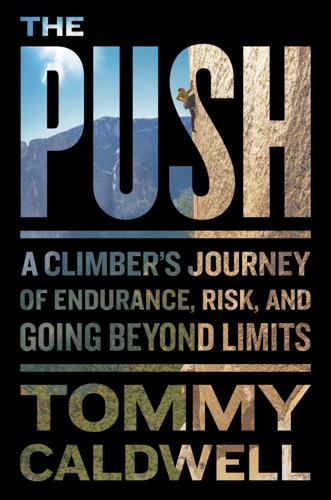
The Push: A Climber's Search for the Path
by
Tommy Caldwell
Published 15 May 2017
After entry fees, the prize money typically left me with about a hundred bucks a month, enough to keep climbing and going to comps. I showered maybe twice a month at YMCAs, and spent my rest days at public libraries and dollar movie theaters. I shopped at dented can and expired food stores, and even did a bit of Dumpster diving. I always slept in my car. Seeing how little money I could spend became a fun game. I cherished the freedom associated with a lack of material need. In between trips I’d go home, empty my parents’ pantry, and head back on the road. One of those trips took Chris and me to Smith Rock State Park, in central Oregon’s high desert.
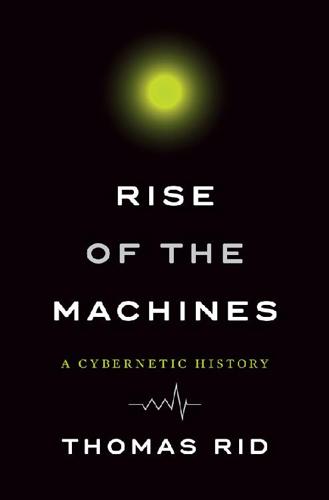
Rise of the Machines: A Cybernetic History
by
Thomas Rid
Published 27 Jun 2016
Some users of critical military systems, it turned out, simply used the word “password” as their password. The NSA also tricked and socially engineered PACOM staff to open dodgy e-mail attachments laced with malware. The Joint Staff using another, more tested method, sent very special forces out to Hickam Field to “dumpster-dive” for discarded printouts with log-in information or other useful details. One day the red team at FANX III received an e-mail from PACOM: “Don’t use MILNET,” it said. “The network has been compromised.” The officers at Pacific Command sending the e-mail of course did not realize that they had actually sent a warning to the ones attacking them.

Jennifer Morgue
by
Stross, Charles
Published 12 Jan 2006
The stairs feel as if they're on the edge of crumbling beneath my shoes, maggot-riddled boards creaking warnings to one another. The air is turning clammy. Keep breathing, I remind myself. ''You haven't been entirely honest with me, have you? You and Pat. You've been using that block of his to keep me from dumpster-diving your head for intelligence. Playing me like an instrument:'' ''Hey, you're a fine one to talk!'' Too late: I realize she's glimpsed my memory of Mo's briefing. Secure the geas generator. ''You guys want it, too.'' ''No,'' I say grimly, ''we want to stop anyone from getting it. Because if you think through the political implications of a human power suddenly starting to play with chthonian tech, you need to ask yourself whether BLUE HADES would view it — '' Creepy violin music in the back of my head raises the hair on the nape of my neck, just as I round the corner at the top of the stairs and come face to face with another zombie in a black uniform.

Iron Sunrise
by
Stross, Charles
Published 28 Oct 2004
Duct diving — with an oxy mask; you could never tell what might be on the other side of a sealed bulkhead. But most kids didn’t have invisible friends who talked back via the expensive net implants their parents had shelled out for, much less taught them skills like steganography, traffic analysis, tail spotting, and Dumpster diving. And most kids grew out of having invisible friends, whereas Wednesday didn’t. That was because most misfit kids’ invisible friends were imaginary. Wednesday’s wasn’t. When she was younger she’d told her brother Jeremy about her friend, who was called Herman: but Jerm had blabbed to Mum, and the result was a tense inquisition and trips to the network engineers, then the counselor’s office.

Evicted: Poverty and Profit in the American City
by
Matthew Desmond
Published 1 Mar 2016
Scott began sleeping on the Aldeas’ couch and picking up their children from school. Soon, he began working with David, a freelance mason and, in lean weeks, a metal scrapper. Scott liked the work, especially the urban adventure of hunting for aluminum or steel scraps, even if it did involve the occasional Dumpster dive. A barrel-chested Puerto Rican man with pinched eyes and a ready grin, sometimes David paid Scott and sometimes he didn’t. Scott didn’t complain. How could he, after what David and Anna had done for him? — At first, Scott liked cleaning the Serenity Club. The pay was piddly—$7.15 an hour, which would give him around $100 a week—but because he worked alone, from ten p.m. to one a.m. most nights, it gave him time to think.

The Book: A Cover-To-Cover Exploration of the Most Powerful Object of Our Time
by
Keith Houston
Published 21 Aug 2016
Franz Boas, the father of modern American anthropology, reportedly said, “Man never lies to his garbage heap,” and he was right: a large part of what is known about humanity’s past has been divined from contents of the piles and pits of refuse that surrounded our settlements.1 History, it turns out, is written not by the strongest but by the messiest, and the history of books is no exception. The few tantalizing glimpses that we have into the formative years of the paged book are due to one particular episode of archaeological dumpster-diving, the heroically dogged excavation of many centuries’ worth of one town’s refuse that massively expanded our understanding of the literary cultures of ancient Egypt, Greece, and Rome. Late in 1896, two English archaeologists made the trek from the leafy environs of their alma mater in Oxford to the Egyptian village of El-Bahnasa, a few days south of the ancient capital of Memphis and sited on a branch of the Nile called the Bahr Yusuf, or “Joseph’s Canal.”2 Though adorned here and there with classical ruins, El-Bahnasa had been largely ignored by the many itinerant academics then combing Egypt’s ancient landscape, and so Bernard P.
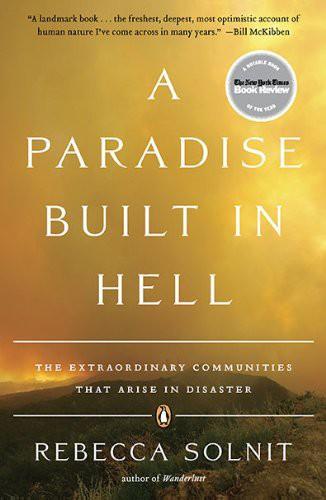
A Paradise Built in Hell: Extraordinary Communities That Arise in Disaster
by
Rebecca Solnit
Published 31 Aug 2010
They have bridged the gap between utopian experiment and traditional carnival, incorporating costuming, dancing, music, festivity, ceremony, and large-scale mingling. In creating an infrastructure to maintain weeks of communal life, the gatherings recall utopian communities, but in producing nothing practical and instead relying on resources garnered in the outside world, whether by Dumpster diving or putting it on a credit card, they are more like a festival. If you regard mainstream society as a disaster—some Rainbows call it Babylon—it makes sense to create the equivalent of a disaster community as an alternative and refuge from it. This is one of the arenas in contemporary society where revolution, disaster, and carnival converge into something namelessly new.

Finding Community: How to Join an Ecovillage or Intentional Community
by
Diana Leafe Christian
Published 14 Jun 2007
• “Disliking the decision-making method” • “Allowing questionable people to join the community” • “Gossip” • “Communication problems between managers and workers” But it was the deep soul searching I experienced which perhaps surprised me the most on this journey. The various issues communities were wrestling with swirled around in my head as I drove from place to place. “What does it really mean to live sustainably?” “Is dumpster diving for food really living simply?” “Can some protest marches cause more harm than good, and how does one determine this ahead of time?” “Can a pet policy be created that satisŠes both members who like pets and members who extremely dislike them?” Traveling through the state of Kentucky caused my mind to work overtime!
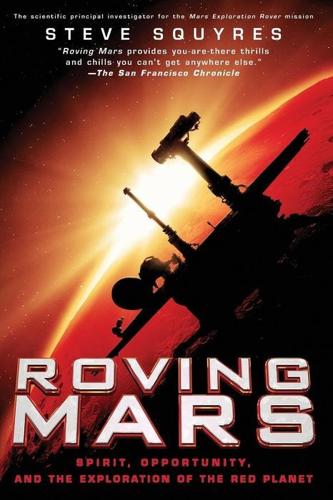
Roving Mars: Spirit, Opportunity, and the Exploration of the Red Planet
by
Steven Squyres
Published 2 Aug 2005
It’s not enough to walk over to a plastic bucket in a firehouse and take something. We have to have a pedigree, some official transfer of material.” It was so ironic; endless truckloads of debris from the towers were flowing by Honeybee every day. But if we were going to do this, we couldn’t build a memorial by going Dumpster diving, or by grabbing something off the back of a truck. We had to do it right. Steve had an idea. A friend of his, John Sexton, was the dean of the NYU Law School, and well known within the administration of New York’s mayor, Rudy Giuliani. Working through Sexton, Steve made contacts at a series of increasingly high levels within the overburdened city administration.
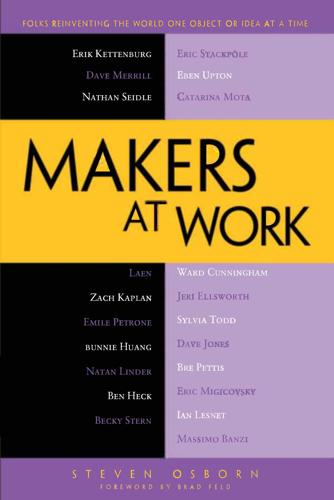
Makers at Work: Folks Reinventing the World One Object or Idea at a Time
by
Steven Osborn
Published 17 Sep 2013
Then I found a little barbershop, a one-chair barbershop, and rented it. I took the barber chair out of this dinky space and threw it in the back alley. I opened up a computer store, but I didn’t have any product to put on the walls. I’d spent all of my money to get the store fixtures put in. I was dumpster diving in my ex-business partner’s trash to get the empty boxes he was throwing away. I would put them on the wall and make it look like I had something. So a customer would come in and he’d point to a sound card or something, and he’d say, “I want that sound card.” I’d say, “Well, that one is already spoken for, but if you give me half the money, I’ll get you one here in a couple of days,” which half the money was about what it cost to get it wholesale.

Accelerando
by
Stross, Charles
Published 22 Jan 2005
Newly formed, slowly unskeletonizing corpses – like a time-lapse process of decay with a finger angrily twisting the dial into high-speed reverse – is both distasteful and aesthetically displeasing to watch. Nor do the bodies tell him anything about their occupants. This sort of stuff is just a necessary prequel to the main event, a formal reception and banquet to which he has devoted the full-time attention of four ghosts. He could, given a few less inhibitions, go Dumpster-diving in their mental archives, but that's one of the big taboos of the post-wetware age. (Spy agencies went meme-profiling and memory-mining in the third and fourth decades, gained a thought police rap sheet, and spawned a backlash of deviant mental architectures resilient to infowar intrusions. Now the nations that those spook institutions served no longer exist, their very landmasses being part of the orbiting nöosphere construction project that will ultimately turn the mass of the entire solar system into a gigantic Matrioshka brain.
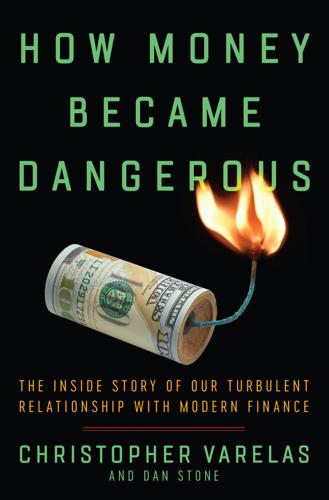
How Money Became Dangerous
by
Christopher Varelas
Published 15 Oct 2019
The 1986 Fortune magazine cover that featured a young investment banker cockily holding a cigar and gazing into the camera with an expression of callous confidence had in big red caps: WALL STREET’S OVERPAID YOUNG STARS, and a caption that read: “At 31, Kansas-born David Wittig makes some $500,000 a year at Kidder Peabody.” (Wittig was the same guy who would later run Salomon’s M&A department, the managing director who played golf with my sister and interviewed Michael Soenen for a job, tormenting him about Teterboro tail numbers and Dumpster-diving for Wall Street Journal throwaways.) The Fortune magazine cover made waves throughout and beyond the industry. It was the first widely discussed example of Wall Street compensation, and, in many ways, it was the moment that triggered a seminal change in the financial services industry toward compensation transparency.
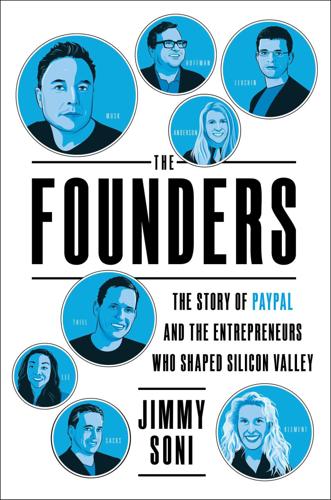
The Founders: The Story of Paypal and the Entrepreneurs Who Shaped Silicon Valley
by
Jimmy Soni
Published 22 Feb 2022
“They were paranoid,” Confinity board member John Malloy recalled. “They got kind of crazy about it.” Levchin recalls instructing Confinity employees, “Hey, if you’re going near the old office, be careful what you say. The walls might have ears.” X.com later shared rumors that Confinity personnel went dumpster diving for the shredded remains of X.com’s business plan. But the teams’ paranoia wasn’t entirely without foundation. David Wallace had a special view into the competition as head of Confinity customer service. In this capacity, he remembered a troubling sign in late 1999. “We were getting a lot of X.com people signing up here… Hey guys, you might want to know there’s something going on,” Wallace recalled.
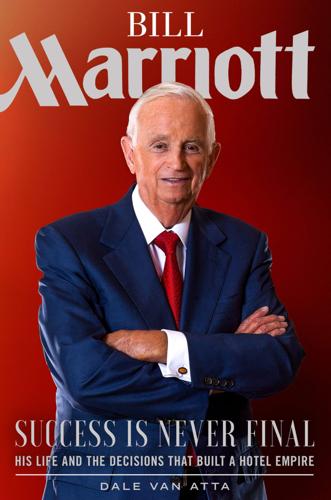
Bill Marriott: Success Is Never Final--His Life and the Decisions That Built a Hotel Empire
by
Dale van Atta
Published 14 Aug 2019
The director of room service climbed into the kitchen dumpster to look for it—a task made more difficult by the fact that he didn’t know what a chestnut looked like. He found it and returned it to the grateful Samaranch. Then came another call the next morning. He had left the chestnut on the room-service tray again. So, again, the manager went dumpster diving to retrieve it. Bill told the story to an employee conference and concluded, “To our customers, let me say, ‘We may not be able to pull your chestnuts out of the fire, but we will go into the dumpster for you!’ Every time.”7 As Bill moved aggressively toward the goal of 2,000 MI hotels by the year 2000, he worked hand in hand with Host Marriott’s CEO, Steve Bollenbach.

May We Be Forgiven
by
A. M. Homes
Published 14 Jun 2012
“How about just going to the police and saying, ‘Hi there, I found these in a trash can and realized they belong to the girl in the garbage bag.’” “It’s kind of fascinating,” she says, “what you find in the garbage.” “What made you look in there?” “I don’t know. Something caught my eye. I used to have a boyfriend who was into Dumpster diving.” “Why would you appropriate someone else’s identification?” “Haven’t you ever just needed to be someone else?” she says. I shrug no. “I was working, I had a job, I lived in Brooklyn. I really liked it. I was dating this guy, flawed but a warm body; we had a cat. And then my mother fell and my father couldn’t take care of her, and so I came home, and it’s like sinking into quicksand.
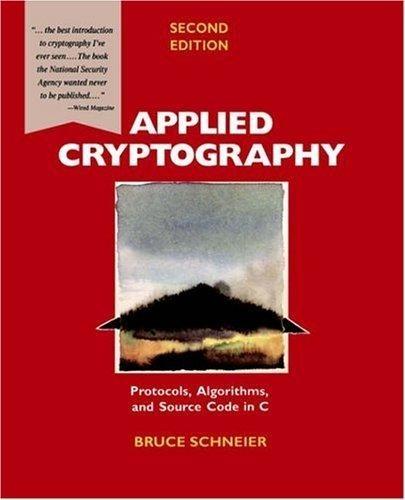
Applied Cryptography: Protocols, Algorithms, and Source Code in C
by
Bruce Schneier
Published 10 Nov 1993
The real world offers the attacker a richer menu of options than mere cryptanalysis. Often more worrisome are protocol attacks, Trojan horses, viruses, electromagnetic monitoring, physical compromise, blackmail and intimidation of key holders, operating system bugs, application program bugs, hardware bugs, user errors, physical eavesdropping, social engineering, and dumpster diving, to name just a few. High-quality ciphers and protocols are important tools, but by themselves make poor substitutes for realistic, critical thinking about what is actually being protected and how various defenses might fail (attackers, after all, rarely restrict themselves to the clean, well-defined threat models of the academic world).